424 papers:
 DAC-2015-ChangHLW #analysis #encoding #functional #named
DAC-2015-ChangHLW #analysis #encoding #functional #named- TA-FTA: transition-aware functional timing analysis with a four-valued encoding (JCCC, RHMH, LYZL, CHPW), p. 6.
 DAC-2015-ChenSC #flexibility
DAC-2015-ChenSC #flexibility- A SPICE model of flexible transition metal dichalcogenide field-effect transistors (YYC, ZS, DC), p. 6.
 DAC-2015-HeyseS
DAC-2015-HeyseS- Avoiding transitional effects in dynamic circuit specialisation on FPGAs (KH, DS), p. 6.
 DAC-2015-RakshitWLGM #design #power management #robust
DAC-2015-RakshitWLGM #design #power management #robust- Monolayer transition metal dichalcogenide and black phosphorus transistors for low power robust SRAM design (JR, RW, KTL, JG, KM), p. 6.
 DATE-2015-Sharma #optimisation #power management
DATE-2015-Sharma #optimisation #power management- Minimum current consumption transition time optimization methodology for low power CTS (VS), pp. 412–416.
 ICSME-2015-NishikawaWFOM #traceability #transitive
ICSME-2015-NishikawaWFOM #traceability #transitive- Recovering transitive traceability links among software artifacts (KN, HW, YF, KO, RM), pp. 576–580.
 CIAA-2015-AdigaKMRRS #complexity
CIAA-2015-AdigaKMRRS #complexity- Complexity of Inferring Local Transition Functions of Discrete Dynamical Systems (AA, CJK, MVM, SSR, DJR, RES), pp. 21–34.
 DLT-2015-CzybaST #automaton #finite #infinity #modelling
DLT-2015-CzybaST #automaton #finite #infinity #modelling- Finite Automata Over Infinite Alphabets: Two Models with Transitions for Local Change (CC, CS, WT), pp. 203–214.
 SEFM-2015-BeekDGMP #constraints #variability
SEFM-2015-BeekDGMP #constraints #variability- From Featured Transition Systems to Modal Transition Systems with Variability Constraints (MHtB, FD, SG, FM, LP), pp. 344–359.
 GaM-2015-Wijs #confluence #detection #lts
GaM-2015-Wijs #confluence #detection #lts- Confluence Detection for Transformations of Labelled Transition Systems (AW), pp. 1–15.
 ICGT-2015-Padberg #configuration management #petri net
ICGT-2015-Padberg #configuration management #petri net- Reconfigurable Petri Nets with Transition Priorities and Inhibitor Arcs (JP), pp. 104–120.
 CHI-2015-DuCZL
CHI-2015-DuCZL- Trajectory Bundling for Animated Transitions (FD, NC, JZ, YRL), pp. 289–298.
 CSCW-2015-HaimsonBDH #facebook #gender
CSCW-2015-HaimsonBDH #facebook #gender- Disclosure, Stress, and Support During Gender Transition on Facebook (OLH, JRB, LD, GRH), pp. 1176–1190.
 CSCW-2015-KaziunasBJCHA #health
CSCW-2015-KaziunasBJCHA #health- Transition and Reflection in the Use of Health Information: The Case of Pediatric Bone Marrow Transplant Caregivers (EK, AGB, JJ, SWC, DAH, MSA), pp. 1763–1774.
 ICML-2015-QiuXHLC #estimation #matrix #process #robust
ICML-2015-QiuXHLC #estimation #matrix #process #robust- Robust Estimation of Transition Matrices in High Dimensional Heavy-tailed Vector Autoregressive Processes (HQ, SX, FH, HL, BC), pp. 1843–1851.
 KDD-2015-HolleczekAYJAGL #agile #metric #recommendation
KDD-2015-HolleczekAYJAGL #agile #metric #recommendation- Traffic Measurement and Route Recommendation System for Mass Rapid Transit (MRT) (TH, DTA, SY, YJ, SA, HLG, SL, ASN), pp. 1859–1868.
 KDD-2015-OuCWW0 #component #similarity #transitive
KDD-2015-OuCWW0 #component #similarity #transitive- Non-transitive Hashing with Latent Similarity Components (MO, PC, FW, JW, WZ), pp. 895–904.
 KDD-2015-TanSZ0 #learning #transitive
KDD-2015-TanSZ0 #learning #transitive- Transitive Transfer Learning (BT, YS, EZ, QY), pp. 1155–1164.
 QAPL-2015-LeeV #bisimulation #branch #congruence #probability
QAPL-2015-LeeV #bisimulation #branch #congruence #probability- Rooted branching bisimulation as a congruence for probabilistic transition systems (MDL, EPdV), pp. 79–94.
 HPDC-2015-LiTKC #named #parallel #thread #visual notation
HPDC-2015-LiTKC #named #parallel #thread #visual notation- Transit: A Visual Analytical Model for Multithreaded Machines (AL, YCT, AK, HC), pp. 101–106.
 ICLP-2015-MartinezRIAT #learning #modelling #probability
ICLP-2015-MartinezRIAT #learning #modelling #probability- Learning Probabilistic Action Models from Interpretation Transitions (DM, TR, KI, GA, CT).
 ICST-2015-KorosecP #agile #matrix
ICST-2015-KorosecP #agile #matrix- Supporting the Transition to an Agile Test Matrix (RK, RP), pp. 1–2.
 CASE-2014-GaoLWA #monitoring #petri net #problem #sequence #using
CASE-2014-GaoLWA #monitoring #petri net #problem #sequence #using- A monitor solution to enforce legal transition firing sequences problems by using Petri nets (XG, ZL, AW, AMAA), pp. 419–424.
 DATE-2014-Pomeranz14a #fault
DATE-2014-Pomeranz14a #fault- Substituting transition faults with path delay faults as a basic delay fault model (IP), pp. 1–6.
 ESOP-2014-NanevskiLSD #communication #concurrent #fine-grained
ESOP-2014-NanevskiLSD #communication #concurrent #fine-grained- Communicating State Transition Systems for Fine-Grained Concurrent Resources (AN, RLW, IS, GAD), pp. 290–310.
 CSMR-WCRE-2014-OyetoyanCC #component #dependence #evolution #fault
CSMR-WCRE-2014-OyetoyanCC #component #dependence #evolution #fault- Transition and defect patterns of components in dependency cycles during software evolution (TDO, DSC, RC), pp. 283–292.
 ICPC-2014-KaulgudAMT #comprehension #learning
ICPC-2014-KaulgudAMT #comprehension #learning- Comprehension support during knowledge transitions: learning from field (VSK, KMA, JM, GT), pp. 205–206.
 AFL-2014-Vorel #automaton #set #transitive
AFL-2014-Vorel #automaton #set #transitive- Subset Synchronization of Transitive Automata (VV), pp. 370–381.
 DLT-2014-BerdinskyK #automation #graph #on the #transitive
DLT-2014-BerdinskyK #automation #graph #on the #transitive- On Automatic Transitive Graphs (DB, BK), pp. 1–12.
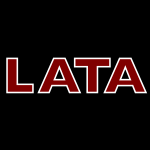 LATA-2014-BreveglieriCM #network #parsing
LATA-2014-BreveglieriCM #network #parsing- Shift-Reduce Parsers for Transition Networks (LB, SCR, AM), pp. 222–235.
 FM-2014-KrkaDMU
FM-2014-KrkaDMU- Revisiting Compatibility of Input-Output Modal Transition Systems (IK, ND, NM, SU), pp. 367–381.
 CHI-2014-LeeJN #experience
CHI-2014-LeeJN #experience- Partially intelligent automobiles and driving experience at the moment of system transition (KJL, YKJ, CN), pp. 3631–3634.
 CHI-2014-McLachlanBB #interactive
CHI-2014-McLachlanBB #interactive- Transient and transitional states: pressure as an auxiliary input modality for bimanual interaction (RM, DB, SAB), pp. 401–410.
 CSCW-2014-MassimiBWA #community #health #online
CSCW-2014-MassimiBWA #community #health #online- Life transitions and online health communities: reflecting on adoption, use, and disengagement (MM, JLB, HOW, OHA), pp. 1491–1501.
 DUXU-ELAS-2014-WinklerP #design #named #smarttech #towards #transitive
DUXU-ELAS-2014-WinklerP #design #named #smarttech #towards #transitive- ReFlexLab: Designing Transitive Wearable Technologies towards Poetic Aesthetics (CW, SP), pp. 731–738.
 DUXU-ELAS-2014-WinklerP14a #design #named #smarttech #towards #transitive
DUXU-ELAS-2014-WinklerP14a #design #named #smarttech #towards #transitive- Erratum: ReFlexLab: Designing Transitive Wearable Technologies towards Poetic Aesthetics (CW, SP).
 ICML-c2-2014-ChenX #modelling #statistics
ICML-c2-2014-ChenX #modelling #statistics- Statistical-Computational Phase Transitions in Planted Models: The High-Dimensional Setting (YC, JX), pp. 244–252.
 ICPR-2014-BiswasZLMV #analysis #detection #image #using
ICPR-2014-BiswasZLMV #analysis #detection #image #using- Lesion Detection in Breast Ultrasound Images Using Tissue Transition Analysis (SB, FZ, XL, RM, VV), pp. 1185–1188.
 KDD-2014-SudhofEMP #sentiment #social
KDD-2014-SudhofEMP #sentiment #social- Sentiment expression conditioned by affective transitions and social forces (MS, AGE, ALM, CP), pp. 1136–1145.
 KMIS-2014-PaciBLT #research
KMIS-2014-PaciBLT #research- Research Change in Transition (AMP, CB, CL, FT), pp. 44–53.
 POPL-2014-BokerHR
POPL-2014-BokerHR- Battery transition systems (UB, TAH, AR), pp. 595–606.
 SAC-2014-BeoharM #consistency #testing
SAC-2014-BeoharM #consistency #testing- Input-output conformance testing based on featured transition systems (HB, MRM), pp. 1272–1278.
 ICSE-2014-MusluBNC #case study #distributed #version control
ICSE-2014-MusluBNC #case study #distributed #version control- Transition from centralized to decentralized version control systems: a case study on reasons, barriers, and outcomes (KM, CB, NN, JC), pp. 334–344.
 LICS-CSL-2014-CharatonikKM #decidability #logic #transitive
LICS-CSL-2014-CharatonikKM #decidability #logic #transitive- Decidability of weak logics with deterministic transitive closure (WC, EK, FM), p. 10.
 LICS-CSL-2014-LevyS #game studies
LICS-CSL-2014-LevyS #game studies- Transition systems over games (PBL, SS), p. 10.
 CASE-2013-SaricXS #assembly
CASE-2013-SaricXS #assembly- Robotic surface assembly via contact state transitions (AS, JX, JS), pp. 954–959.
 DAC-2013-LiaoHL #detection #fault
DAC-2013-LiaoHL #detection #fault- GPU-based n-detect transition fault ATPG (KYL, SCH, JCML), p. 8.
 DATE-2013-GhiribaldiBN #architecture #effectiveness #manycore
DATE-2013-GhiribaldiBN #architecture #effectiveness #manycore- A transition-signaling bundled data NoC switch architecture for cost-effective GALS multicore systems (AG, DB, SMN), pp. 332–337.
 PODS-2013-Figueira #on the #testing #transitive #xpath
PODS-2013-Figueira #on the #testing #transitive #xpath- On XPath with transitive axes and data tests (DF), pp. 249–260.
 SIGMOD-2013-WangLKFF #crowdsourcing #transitive
SIGMOD-2013-WangLKFF #crowdsourcing #transitive- Leveraging transitive relations for crowdsourced joins (JW, GL, TK, MJF, JF), pp. 229–240.
 CSEET-2013-LongstreetC #development #education #re-engineering
CSEET-2013-LongstreetC #development #education #re-engineering- Positive transitions from the classroom to the cubicle: Creating strategies for augmenting professional development in the software engineering curriculum (CSL, KMLC), pp. 365–367.
 PLDI-2013-UdupaRDMMA #named #protocol #specification
PLDI-2013-UdupaRDMMA #named #protocol #specification- TRANSIT: specifying protocols with concolic snippets (AU, AR, JVD, SMH, MMKM, RA), pp. 287–296.
 CIAA-2013-MaiaMR #complexity #finite
CIAA-2013-MaiaMR #complexity #finite- Incomplete Transition Complexity of Basic Operations on Finite Languages (EM, NM, RR), pp. 349–356.
 DLT-2013-Regnault #automaton #probability #proving
DLT-2013-Regnault #automaton #probability #proving- Proof of a Phase Transition in Probabilistic Cellular Automata (DR), pp. 433–444.
 ICALP-v2-2013-GottlobPT #query #transitive
ICALP-v2-2013-GottlobPT #query #transitive- Querying the Guarded Fragment with Transitivity (GG, AP, LT), pp. 287–298.
 ICALP-v2-2013-Zetzsche #automaton
ICALP-v2-2013-Zetzsche #automaton- Silent Transitions in Automata with Storage (GZ), pp. 434–445.
 IFM-2013-Prehofer #behaviour #diagrams #refinement #specification
IFM-2013-Prehofer #behaviour #diagrams #refinement #specification- Assume-Guarantee Specifications of State Transition Diagrams for Behavioral Refinement (CP), pp. 31–45.
 SEFM-2013-PerceboisST #graph transformation #invariant #transitive #verification
SEFM-2013-PerceboisST #graph transformation #invariant #transitive #verification- Rule-Level Verification of Graph Transformations for Invariants Based on Edges’ Transitive Closure (CP, MS, HNT), pp. 106–121.
 CHI-2013-OdomZFHMCLNLLKRSSM #comprehension
CHI-2013-OdomZFHMCLNLLKRSSM #comprehension- Fragmentation and transition: understanding perceptions of virtual possessions among young adults in Spain, South Korea and the United States (WO, JZ, JF, ALH, MM, JC, YKL, TJN, MHL, YL, DjK, YKR, JS, BS, HM), pp. 1833–1842.
 CHI-2013-Ortega #3d #automation #using
CHI-2013-Ortega #3d #automation #using- 3D object position using automatic viewpoint transitions (MO), pp. 193–196.
 CHI-2013-YooZH #co-evolution #design
CHI-2013-YooZH #co-evolution #design- Probing bus stop for insights on transit co-design (DY, JZ, TH), pp. 409–418.
 CSCW-2013-ColineauPN #collaboration #design
CSCW-2013-ColineauPN #collaboration #design- Designing for reflection and collaboration to support a transition from welfare to work (NC, CP, SN), pp. 471–476.
 CSCW-2013-KazakosHV #product line
CSCW-2013-KazakosHV #product line- Revisiting the relationship between reunion and technology-mediated separation in periodically transitioning families (KK, SH, FV), pp. 1157–1168.
 CSCW-2013-SmithQC #analysis #identification #using
CSCW-2013-SmithQC #analysis #identification #using- Finger on the pulse: identifying deprivation using transit flow analysis (CSC, DQ, LC), pp. 683–692.
 DUXU-WM-2013-TrappY #mobile
DUXU-WM-2013-TrappY #mobile- Addressing Animated Transitions already in Mobile App Storyboards (MT, RY), pp. 723–732.
 HCI-AS-2013-DixonDD13a #design #health #implementation #mobile #testing
HCI-AS-2013-DixonDD13a #design #health #implementation #mobile #testing- Designing, Implementing and Testing a Mobile Application to Assist with Pediatric-to-Adult Health Care Transition (JD, JD, SDD), pp. 66–75.
 CIKM-2013-LiuLAM #mining #personalisation #recommendation
CIKM-2013-LiuLAM #mining #personalisation #recommendation- Personalized point-of-interest recommendation by mining users’ preference transition (XL, YL, KA, CM), pp. 733–738.
 ICML-c2-2013-HanL #estimation #matrix
ICML-c2-2013-HanL #estimation #matrix- Transition Matrix Estimation in High Dimensional Time Series (FH, HL), pp. 172–180.
 CADE-2013-Mayer #hybrid #logic #proving #transitive
CADE-2013-Mayer #hybrid #logic #proving #transitive- A Proof Procedure for Hybrid Logic with Binders, Transitivity and Relation Hierarchies (MCM), pp. 76–90.
 CSL-2013-MichaliszynO #logic #transitive
CSL-2013-MichaliszynO #logic #transitive- Elementary Modal Logics over Transitive Structures (JM, JO), pp. 563–577.
 ICST-2013-AlegrothFO #automation #case study #industrial #testing
ICST-2013-AlegrothFO #automation #case study #industrial #testing- Transitioning Manual System Test Suites to Automated Testing: An Industrial Case Study (EA, RF, HHO), pp. 56–65.
 TAP-2013-StokkinkTS
TAP-2013-StokkinkTS- Divergent Quiescent Transition Systems (WGJS, MT, MS), pp. 214–231.
 CASE-2012-HanXZLW #concurrent #policy
CASE-2012-HanXZLW #concurrent #policy- Two-stage deadlock prevention policy based on resource-transition circuits (LH, KX, MZ, HL, FW), pp. 741–746.
 CASE-2012-MohajeraniMF #composition #synthesis
CASE-2012-MohajeraniMF #composition #synthesis- Transition removal for compositional supervisor synthesis (SM, RM, MF), pp. 694–699.
 DATE-2012-EllenEO #automation #development #embedded #process #safety
DATE-2012-EllenEO #automation #development #embedded #process #safety- Automatic transition between structural system views in a safety relevant embedded systems development process (CE, CE, MO), pp. 820–823.
 DATE-2012-QinM #automation #generative #protocol #testing
DATE-2012-QinM #automation #generative #protocol #testing- Automated generation of directed tests for transition coverage in cache coherence protocols (XQ, PM), pp. 3–8.
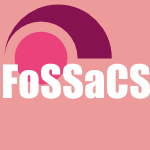 FoSSaCS-2012-DArgenioL #abstraction #bisimulation #congruence #probability #specification
FoSSaCS-2012-DArgenioL #abstraction #bisimulation #congruence #probability #specification- Probabilistic Transition System Specification: Congruence and Full Abstraction of Bisimulation (PRD, MDL), pp. 452–466.
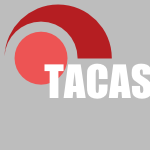 TACAS-2012-LangM #equation #lts #model checking #network #using
TACAS-2012-LangM #equation #lts #model checking #network #using- Partial Model Checking Using Networks of Labelled Transition Systems and Boolean Equation Systems (FL, RM), pp. 141–156.
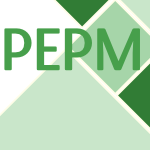 PEPM-2012-HamiltonJ #lts
PEPM-2012-HamiltonJ #lts- Distillation with labelled transition systems (GWH, NDJ), pp. 15–24.
 STOC-2012-KaufmanL #graph #symmetry #transitive
STOC-2012-KaufmanL #graph #symmetry #transitive- Edge transitive ramanujan graphs and symmetric LDPC good codes (TK, AL), pp. 359–366.
 CIAA-2012-LombardyS
CIAA-2012-LombardyS- The Removal of Weighted ε-Transitions (SL, JS), pp. 345–352.
 CIAA-2012-Martyugin #ambiguity #automaton
CIAA-2012-Martyugin #ambiguity #automaton- Synchronization of Automata with One Undefined or Ambiguous Transition (PVM), pp. 278–288.
 FM-2012-DIppolitoBPU #problem
FM-2012-DIppolitoBPU #problem- The Modal Transition System Control Problem (ND, VAB, NP, SU), pp. 155–170.
 FM-2012-HojjatKGIKR #tool support #verification
FM-2012-HojjatKGIKR #tool support #verification- A Verification Toolkit for Numerical Transition Systems — Tool Paper (HH, FK, FG, RI, VK, PR), pp. 247–251.
 FM-2012-SibayUBK
FM-2012-SibayUBK- Distribution of Modal Transition Systems (GES, SU, VAB, JK), pp. 403–417.
 GRAPHITE-2012-BeckmannFKM #analysis #graph
GRAPHITE-2012-BeckmannFKM #analysis #graph- A structural analysis of the A5/1 state transition graph (AB, JF, JK, UM), pp. 5–19.
 ICGT-2012-BergmannRSTV #incremental #pattern matching #performance #transitive
ICGT-2012-BergmannRSTV #incremental #pattern matching #performance #transitive- Incremental Pattern Matching for the Efficient Computation of Transitive Closure (GB, IR, TS, PT, DV), pp. 386–400.
 CHI-2012-HenneckeMB #how #interactive #pointer
CHI-2012-HenneckeMB #how #interactive #pointer- How screen transitions influence touch and pointer interaction across angled display arrangements (FH, WM, AB), pp. 209–212.
 ICML-2012-Araya-LopezBT #using
ICML-2012-Araya-LopezBT #using- Near-Optimal BRL using Optimistic Local Transitions (MAL, OB, VT), p. 70.
 ICML-2012-GrunewalderLBPG #modelling
ICML-2012-GrunewalderLBPG #modelling- Modelling transition dynamics in MDPs with RKHS embeddings (SG, GL, LB, MP, AG), p. 208.
 KDD-2012-ChenFDS #case study
KDD-2012-ChenFDS #case study- Differentially private transit data publication: a case study on the montreal transportation system (RC, BCMF, BCD, NMS), pp. 213–221.
 KDD-2012-WangAB #modelling #named #online #performance #social #social media #topic
KDD-2012-WangAB #modelling #named #online #performance #social #social media #topic- TM-LDA: efficient online modeling of latent topic transitions in social media (YW, EA, MB), pp. 123–131.
 KMIS-2012-Grim-YefsahD #information management #outsourcing
KMIS-2012-Grim-YefsahD #information management #outsourcing- Knowledge Transfer in Practice — A Socio-technical System for the Transition in Outsourcing (MGY, JD), pp. 223–228.
 SIGIR-2012-LiuADMS #comprehension #web
SIGIR-2012-LiuADMS #comprehension #web- When web search fails, searchers become askers: understanding the transition (QL, EA, GD, YM, IS), pp. 801–810.
 MoDELS-2012-ArandaDB #modelling #question #what
MoDELS-2012-ArandaDB #modelling #question #what- Transition to Model-Driven Engineering — What Is Revolutionary, What Remains the Same? (JA, DD, AB), pp. 692–708.
 MoDELS-2012-ArandaDB #modelling #question #what
MoDELS-2012-ArandaDB #modelling #question #what- Transition to Model-Driven Engineering — What Is Revolutionary, What Remains the Same? (JA, DD, AB), pp. 692–708.
 RE-2012-SmialekS #requirements
RE-2012-SmialekS #requirements- Facilitating transition from requirements to code with the ReDSeeDS tool (MS, TS), pp. 321–322.
 CSL-2012-KaiserL #logic
CSL-2012-KaiserL #logic- A Counting Logic for Structure Transition Systems (LK, SL), pp. 366–380.
 CSL-2012-KieronskiM #logic #transitive
CSL-2012-KieronskiM #logic #transitive- Two-Variable Universal Logic with Transitive Closure (EK, JM), pp. 396–410.
 VMCAI-2012-ZuffereyWH #abstraction
VMCAI-2012-ZuffereyWH #abstraction- Ideal Abstractions for Well-Structured Transition Systems (DZ, TW, TAH), pp. 445–460.
 DAC-2011-Pomeranz #clustering #fault
DAC-2011-Pomeranz #clustering #fault- Diagnosis of transition fault clusters (IP), pp. 429–434.
 DATE-2011-Al-DujailyMXYP #concurrent #detection #network #runtime #transitive #using
DATE-2011-Al-DujailyMXYP #concurrent #detection #network #runtime #transitive #using- Run-time deadlock detection in networks-on-chip using coupled transitive closure networks (RAD, TSTM, FX, AY, MP), pp. 497–502.
 DATE-2011-MiyaseWAFYK #generative #testing
DATE-2011-MiyaseWAFYK #generative #testing- Transition-Time-Relation based capture-safety checking for at-speed scan test generation (KM, XW, MA, HF, YY, SK), pp. 895–898.
 FoSSaCS-2011-BonnetFHR
FoSSaCS-2011-BonnetFHR- Ordinal Theory for Expressiveness of Well Structured Transition Systems (RB, AF, SH, FRV), pp. 153–167.
 TACAS-2011-PodelskiR #abstraction #invariant #termination
TACAS-2011-PodelskiR #abstraction #invariant #termination- Transition Invariants and Transition Predicate Abstraction for Program Termination (AP, AR), pp. 3–10.
 SAS-2011-VerdoolaegeCB #approximate #integer #transitive #tuple
SAS-2011-VerdoolaegeCB #approximate #integer #transitive #tuple- Transitive Closures of Affine Integer Tuple Relations and Their Overapproximations (SV, AC, AB), pp. 216–232.
 CIAA-2011-FelscherT #composition #detection
CIAA-2011-FelscherT #composition #detection- Compositional Failure Detection in Structured Transition Systems (IF, WT), pp. 130–141.
 DLT-2011-BrodaMMR #automaton #complexity
DLT-2011-BrodaMMR #automaton #complexity- The Average Transition Complexity of Glushkov and Partial Derivative Automata (SB, AM, NM, RR), pp. 93–104.
 DLT-2011-DrosteMST #composition #finite
DLT-2011-DrosteMST #composition #finite- A Cascade Decomposition of Weighted Finite Transition Systems (MD, IM, BS, AT), pp. 472–473.
 ICALP-v1-2011-BermanBGRWY #transitive
ICALP-v1-2011-BermanBGRWY #transitive- Steiner Transitive-Closure Spanners of Low-Dimensional Posets (PB, AB, EG, SR, DPW, GY), pp. 760–772.
 CHI-2011-AzenkotPBFLW #independence #safety
CHI-2011-AzenkotPBFLW #independence #safety- Enhancing independence and safety for blind and deaf-blind public transit riders (SA, SP, AB, EF, REL, JOW), pp. 3247–3256.
 CHI-2011-DragicevicBJEF
CHI-2011-DragicevicBJEF- Temporal distortion for animated transitions (PD, AB, WJ, NE, JDF), pp. 2009–2018.
 CHI-2011-ScarrCGQ #comprehension #user interface
CHI-2011-ScarrCGQ #comprehension #user interface- Dips and ceilings: understanding and supporting transitions to expertise in user interfaces (JS, AC, CG, PQ), pp. 2741–2750.
 DUXU-v2-2011-ShankarVE #challenge #comparative #usability
DUXU-v2-2011-ShankarVE #challenge #comparative #usability- A Fitting Software Comparative Usability Study to Investigate Transition Challenges Faced by Hearing-Aid Practitioners (AS, SV, BE), pp. 517–526.
 HCI-DDA-2011-BomsdorfGHM #configuration management #design #execution #modelling #runtime
HCI-DDA-2011-BomsdorfGHM #configuration management #design #execution #modelling #runtime- Configurable Executable Task Models Supporting the Transition from Design Time to Runtime (BB, SG, MH, JTM), pp. 155–164.
 ICEIS-v2-2011-YeL #theory and practice
ICEIS-v2-2011-YeL #theory and practice- Analyzing Data from AVL/APC System for Improving Transit Management — Theory and Practice (YY, JL), pp. 267–274.
 ICEIS-v3-2011-Li11e #analysis #quality
ICEIS-v3-2011-Li11e #analysis #quality- Construction and Analysis of Service Quality Model for Beijing Urban Mass Transit (WL), pp. 541–543.
 ICEIS-v3-2011-LiuX
ICEIS-v3-2011-LiuX- Assets Management Around Urban Rail Transit (HL, MX), pp. 439–443.
 ICEIS-v3-2011-ZhouL11a #enterprise #information management
ICEIS-v3-2011-ZhouL11a #enterprise #information management- A Discusson about Urban Rail Transit Enterprise Business Management Information System (RZ, SL), pp. 467–471.
 ICML-2011-ChakrabortyS #learning
ICML-2011-ChakrabortyS #learning- Structure Learning in Ergodic Factored MDPs without Knowledge of the Transition Function’s In-Degree (DC, PS), pp. 737–744.
 ECMFA-2011-YueAB #automation #case study #state machine #testing #uml
ECMFA-2011-YueAB #automation #case study #state machine #testing #uml- Automated Transition from Use Cases to UML State Machines to Support State-Based Testing (TY, SA, LCB), pp. 115–131.
 QAPL-2011-FahrenbergTL #game studies
QAPL-2011-FahrenbergTL #game studies- Distances for Weighted Transition Systems: Games and Properties (UF, CRT, KGL), pp. 134–147.
 SAC-2011-DingSW #algorithm #parallel #transitive
SAC-2011-DingSW #algorithm #parallel #transitive- FPGA based parallel transitive closure algorithm (ZD, WS, MYW), pp. 393–394.
 SAC-2011-LucenaCSAS #architecture #modelling #named #requirements
SAC-2011-LucenaCSAS #architecture #modelling #named #requirements- Stream: a strategy for transition between requirements models and architectural models (ML, JC, CTLLS, FMRA, ES), pp. 699–704.
 ICLP-2011-AlrajehKRU #approach #induction #refinement
ICLP-2011-AlrajehKRU #approach #induction #refinement- An Inductive Approach for Modal Transition System Refinement (DA, JK, AR, SU), pp. 106–116.
 ICLP-J-2011-LierlerT #approach #generative
ICLP-J-2011-LierlerT #approach #generative- Transition systems for model generators — A unifying approach (YL, MT), pp. 629–646.
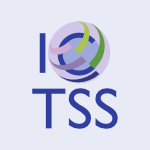 ICTSS-2011-SchwarzlAW #composition #random testing #testing #using
ICTSS-2011-SchwarzlAW #composition #random testing #testing #using- Compositional Random Testing Using Extended Symbolic Transition Systems (CS, BKA, FW), pp. 179–194.
 SAT-2011-GaoYX #case study #compilation
SAT-2011-GaoYX #case study #compilation- Phase Transitions in Knowledge Compilation: An Experimental Study (JG, MY, KX), pp. 364–366.
 ASE-2010-RatanotayanonCS #feature model #transitive #using
ASE-2010-RatanotayanonCS #feature model #transitive #using- Using transitive changesets to support feature location (SR, HJC, SES), pp. 341–344.
 CASE-2010-WangLAB #approach #flexibility #quality
CASE-2010-WangLAB #approach #flexibility #quality- Improving quality in flexible manufacturing systems: A bottleneck transition approach (JW, JL, JA, SB), pp. 610–616.
 DATE-2010-BoydSS #detection #process #trade-off
DATE-2010-BoydSS #detection #process #trade-off- Power-accuracy tradeoffs in human activity transition detection (JB, HS, AS), pp. 1524–1529.
 DATE-2010-JungP #network #nondeterminism #optimisation #power management
DATE-2010-JungP #network #nondeterminism #optimisation #power management- Optimizing the power delivery network in dynamically voltage scaled systems with uncertain power mode transition times (HJ, MP), pp. 351–356.
 DATE-2010-KootiBLB #configuration management #embedded #realtime #scheduling
DATE-2010-KootiBLB #configuration management #embedded #realtime #scheduling- Transition-aware real-time task scheduling for reconfigurable embedded systems (HK, EB, SL, LB), pp. 232–237.
 SIGMOD-2010-ChenMK #database #probability #query
SIGMOD-2010-ChenMK #database #probability #query- GRN model of probabilistic databases: construction, transition and querying (RC, YM, IK), pp. 291–302.
 SAS-2010-HeizmannJP #invariant #termination
SAS-2010-HeizmannJP #invariant #termination- Size-Change Termination and Transition Invariants (MH, NDJ, AP), pp. 22–50.
 CIAA-2010-OkuiS #ambiguity #automaton #regular expression
CIAA-2010-OkuiS #ambiguity #automaton #regular expression- Disambiguation in Regular Expression Matching via Position Automata with Augmented Transitions (SO, TS), pp. 231–240.
 ICALP-v2-2010-BolligGMZ #automaton #logic #transitive
ICALP-v2-2010-BolligGMZ #automaton #logic #transitive- Pebble Weighted Automata and Transitive Closure Logics (BB, PG, BM, MZ), pp. 587–598.
 ICGT-2010-Khomenko #behaviour
ICGT-2010-Khomenko #behaviour- A New Type of Behaviour-Preserving Transition Insertions in Unfolding Prefixes (VK), pp. 75–90.
 CHI-2010-Al-AniMS
CHI-2010-Al-AniMS- Blogging in a region of conflict: supporting transition to recovery (BAA, GM, BS), pp. 1069–1078.
 CHI-2010-BranhamGCB #reuse
CHI-2010-BranhamGCB #reuse- Let’s go from the whiteboard: supporting transitions in work through whiteboard capture and reuse (SMB, GG, SC, JTB), pp. 75–84.
 CHI-2010-Chen
CHI-2010-Chen- Documenting transitional information in EMR (YC), pp. 1787–1796.
 CHI-2010-ChevalierDBF #documentation #navigation #using
CHI-2010-ChevalierDBF #documentation #navigation #using- Using text animated transitions to support navigation in document histories (FC, PD, AB, JDF), pp. 683–692.
 CHI-2010-FerrisWB #named #realtime
CHI-2010-FerrisWB #named #realtime- OneBusAway: results from providing real-time arrival information for public transit (BF, KW, AB), pp. 1807–1816.
 CHI-2010-HuhtalaSMIH #case study #mobile #user interface
CHI-2010-HuhtalaSMIH #case study #mobile #user interface- Animated UI transitions and perception of time: a user study on animated effects on a mobile screen (JH, AHS, JM, MI, JH), pp. 1339–1342.
 CHI-2010-YooZST #co-evolution #comprehension #design #interactive
CHI-2010-YooZST #co-evolution #comprehension #design #interactive- Understanding the space for co-design in riders’ interactions with a transit service (DY, JZ, AS, AT), pp. 1797–1806.
 ICPR-2010-BhatBSS #sequence #transitive #video #visual notation #word
ICPR-2010-BhatBSS #sequence #transitive #video #visual notation #word- Transitive Closure Based Visual Words for Point Matching in Video Sequence (KKSB, MOB, GS, FS), pp. 3300–3303.
 ICPR-2010-Ramirez-OrtegonR10a #documentation
ICPR-2010-Ramirez-OrtegonR10a #documentation- Transition Thresholds for Binarization of Historical Documents (MARO, RR), pp. 2362–2365.
 ICPR-2010-TakahashiKIM #image
ICPR-2010-TakahashiKIM #image- Region-Based Image Transform for Transition Between Object Appearances (TT, YK, II, HM), pp. 2106–2109.
 RecSys-2010-SymeonidisTM #network #predict #similarity #social #transitive
RecSys-2010-SymeonidisTM #network #predict #similarity #social #transitive- Transitive node similarity for link prediction in social networks with positive and negative links (PS, ET, YM), pp. 183–190.
 SIGIR-2010-FilaliNL #ambiguity #query #transitive
SIGIR-2010-FilaliNL #ambiguity #query #transitive- Transitive history-based query disambiguation for query reformulation (KF, AN, CL), pp. 849–850.
 RE-2010-SavolainenKV #agile #development #requirements
RE-2010-SavolainenKV #agile #development #requirements- Transition to Agile Development — Rediscovery of Important Requirements Engineering Practices (JS, JK, AV), pp. 289–294.
 SAC-2010-FurukawaOMI #behaviour #predict #social
SAC-2010-FurukawaOMI #behaviour #predict #social- Prediction of social bookmarking based on a behavior transition model (TF, SO, YM, MI), pp. 1741–1747.
 SPLC-2010-TekinerdoganTS #approach #classification #multi #product line
SPLC-2010-TekinerdoganTS #approach #classification #multi #product line- Multidimensional Classification Approach for Defining Product Line Engineering Transition Strategies (BT, ET, ES), pp. 461–465.
 CAV-2010-KroeningSTW #analysis #composition #invariant #termination
CAV-2010-KroeningSTW #analysis #composition #invariant #termination- Termination Analysis with Compositional Transition Invariants (DK, NS, AT, CMW), pp. 89–103.
 ICST-2010-FeliachiG #automation #generative #modelling #testing
ICST-2010-FeliachiG #automation #generative #modelling #testing- Generating Transition Probabilities for Automatic Model-Based Test Generation (AF, HLG), pp. 99–102.
 DAC-2009-TsaiH
DAC-2009-TsaiH- A false-path aware formal static timing analyzer considering simultaneous input transitions (ST, CYH), pp. 25–30.
 DATE-2009-Schat #fault #on the
DATE-2009-Schat #fault #on the- On the relationship between stuck-at fault coverage and transition fault coverage (JS), pp. 1218–1221.
 TACAS-2009-WehrleKP #model checking
TACAS-2009-WehrleKP #model checking- Transition-Based Directed Model Checking (MW, SK, AP), pp. 186–200.
 ICPC-2009-SimRC #comprehension #graph #question
ICPC-2009-SimRC #comprehension #graph #question- Structure transition graphs: An ECG for program comprehension? (SES, SR, LC), pp. 303–304.
 CIAA-2009-Sastre-Martinez #network #parsing #performance #recursion #using
CIAA-2009-Sastre-Martinez #network #parsing #performance #recursion #using- Efficient Parsing Using Filtered-Popping Recursive Transition Networks (JMSM), pp. 241–244.
 ICALP-v2-2009-ColcombetZ #automaton #bound
ICALP-v2-2009-ColcombetZ #automaton #bound- A Tight Lower Bound for Determinization of Transition Labeled Büchi Automata (TC, KZ), pp. 151–162.
 ICALP-v2-2009-Michaliszyn #decidability #transitive
ICALP-v2-2009-Michaliszyn #decidability #transitive- Decidability of the Guarded Fragment with the Transitive Closure (JM), pp. 261–272.
 ICALP-v2-2009-NicolaLLM #calculus #probability #process
ICALP-v2-2009-NicolaLLM #calculus #probability #process- Rate-Based Transition Systems for Stochastic Process Calculi (RDN, DL, ML, MM), pp. 435–446.
 LATA-2009-SumanP #automaton #integer
LATA-2009-SumanP #automaton #integer- Determinization and Expressiveness of Integer Reset Timed Automata with Silent Transitions (PVS, PKP), pp. 728–739.
 CHI-2009-FindlaterBT #interactive #text-to-text
CHI-2009-FindlaterBT #interactive #text-to-text- Comparing semiliterate and illiterate users’ ability to transition from audio+text to text-only interaction (LF, RB, KT), pp. 1751–1760.
 SIGAda-2009-LiangRS #architecture #automation #generative #prototype
SIGAda-2009-LiangRS #architecture #automation #generative #prototype- “Automatic Prototype Generating” restated with re-ADA: perspective-bridged architecture for document-driven systems transitioning (SXL, LAR, SS), pp. 45–60.
 CAiSE-2009-Guizzardi #concept #modelling #problem #revisited #transitive
CAiSE-2009-Guizzardi #concept #modelling #problem #revisited #transitive- The Problem of Transitivity of Part-Whole Relations in Conceptual Modeling Revisited (GG), pp. 94–109.
 MoDELS-2009-YueBL #analysis #approach #case study #concept #empirical #evaluation #modelling #towards
MoDELS-2009-YueBL #analysis #approach #case study #concept #empirical #evaluation #modelling #towards- A Use Case Modeling Approach to Facilitate the Transition towards Analysis Models: Concepts and Empirical Evaluation (TY, LCB, YL), pp. 484–498.
 MoDELS-2009-YueBL #analysis #approach #case study #concept #empirical #evaluation #modelling #towards
MoDELS-2009-YueBL #analysis #approach #case study #concept #empirical #evaluation #modelling #towards- A Use Case Modeling Approach to Facilitate the Transition towards Analysis Models: Concepts and Empirical Evaluation (TY, LCB, YL), pp. 484–498.
 ICST-2009-KalajiHS #finite #generative #state machine #testing
ICST-2009-KalajiHS #finite #generative #state machine #testing- Generating Feasible Transition Paths for Testing from an Extended Finite State Machine (EFSM) (ASK, RMH, SS), pp. 230–239.
 SAT-2009-CreignouDER #comprehension
SAT-2009-CreignouDER #comprehension- (1, 2)-QSAT: A Good Candidate for Understanding Phase Transitions Mechanisms (NC, HD, UE, RR), pp. 363–376.
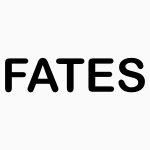 TestCom-FATES-2009-BentakoukPZ #distributed #framework #testing
TestCom-FATES-2009-BentakoukPZ #distributed #framework #testing- A Formal Framework for Service Orchestration Testing Based on Symbolic Transition Systems (LB, PP, FZ), pp. 16–32.
 VMCAI-2009-WeiGC #revisited
VMCAI-2009-WeiGC #revisited- Mixed Transition Systems Revisited (OW, AG, MC), pp. 349–365.
 ECSA-2008-AssmannE #architecture #enterprise
ECSA-2008-AssmannE #architecture #enterprise- Transition to Service-Oriented Enterprise Architecture (MA, GE), pp. 346–349.
 ASE-2008-DIppolitoFCU #named
ASE-2008-DIppolitoFCU #named- MTSA: The Modal Transition System Analyser (ND, DF, MC, SU), pp. 475–476.
 DAC-2008-DuanZK #design
DAC-2008-DuanZK #design- Forbidden transition free crosstalk avoidance CODEC design (CD, CZ, SPK), pp. 986–991.
 DATE-2008-LeeNKT #fault #generative
DATE-2008-LeeNKT #fault #generative- Layout-Aware, IR-Drop Tolerant Transition Fault Pattern Generation (JL, SN, MK, MT), pp. 1172–1177.
 PODS-2008-CateS #automaton #logic #transitive #xpath
PODS-2008-CateS #automaton #logic #transitive #xpath- XPath, transitive closure logic, and nested tree walking automata (BtC, LS), pp. 251–260.
 ICPC-2008-SatoST #comprehension #execution #source code #user interface #visualisation
ICPC-2008-SatoST #comprehension #execution #source code #user interface #visualisation- Support for Understanding GUI Programs by Visualizing Execution Traces Synchronized with Screen Transitions (TS, BS, JT), pp. 272–275.
 DLT-J-2007-Tamm08 #automaton #on the
DLT-J-2007-Tamm08 #automaton #on the- On Transition Minimality of Bideterministic Automata (HT), pp. 677–690.
 DLT-2008-CarpiD #automaton #problem #transitive
DLT-2008-CarpiD #automaton #problem #transitive- The Synchronization Problem for Strongly Transitive Automata (AC, FD), pp. 240–251.
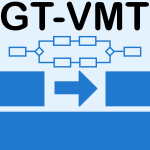 GT-VMT-2008-ReinPLHP #configuration management
GT-VMT-2008-ReinPLHP #configuration management- Negative Application Conditions for Reconfigurable Place/Transition Systems (AR, UP, LL, KH, JP).
 CHI-2008-PietrigaA #lens
CHI-2008-PietrigaA #lens- Sigma lenses: focus-context transitions combining space, time and translucence (EP, CA), pp. 1343–1352.
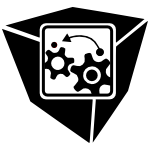 SOFTVIS-2008-PloegerT #interactive #visualisation
SOFTVIS-2008-PloegerT #interactive #visualisation- Improving an interactive visualization of transition systems (BP, CT), pp. 115–124.
 ICPR-2008-LiuZXMD #estimation #image
ICPR-2008-LiuZXMD #estimation #image- Illumination transition image: Parameter-based illumination estimation and re-rendering (JL, NZ, LX, GM, SD), pp. 1–4.
 ICPR-2008-MirzaeiR #clustering #transitive #using
ICPR-2008-MirzaeiR #clustering #transitive #using- Combining hierarchical clusterings using min-transitive closure (AM, MR), pp. 1–4.
 ICPR-2008-PalaioB #adaptation #multi #using
ICPR-2008-PalaioB #adaptation #multi #using- Multi-object tracking using an adaptive transition model particle filter with region covariance data association (HP, JB), pp. 1–4.
 ICPR-2008-YuLL #detection #recognition #robust #video
ICPR-2008-YuLL #detection #recognition #robust #video- Robust time recognition of video clock based on digit transition detection and digit-sequence recognition (XY, YL, WSL), pp. 1–4.
 ICSE-2008-MichalikNO #architecture #case study #evaluation
ICSE-2008-MichalikNO #architecture #case study #evaluation- 3-step knowledge transition: a case study on architecture evaluation (BM, JRN, MO), pp. 741–748.
 SPLC-2008-KruegerCB #product line
SPLC-2008-KruegerCB #product line- HomeAway’s Transition to Software Product Line Practice: Engineering and Business Results in 60 Days (CWK, DC, RB), pp. 297–306.
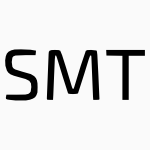 SMT-2007-RozanovS08 #constraints #generative #logic #similarity #transitive
SMT-2007-RozanovS08 #constraints #generative #logic #similarity #transitive- Generating Minimum Transitivity Constraints in P-time for Deciding Equality Logic (MR, OS), pp. 3–17.
 SAT-2008-CreignouDER #quantifier #random
SAT-2008-CreignouDER #quantifier #random- New Results on the Phase Transition for Random Quantified Boolean Formulas (NC, HD, UE, RR), pp. 34–47.
 DAC-2007-AhmedTJ #design #fault #generative
DAC-2007-AhmedTJ #design #fault #generative- Transition Delay Fault Test Pattern Generation Considering Supply Voltage Noise in a SOC Design (NA, MT, VJ), pp. 533–538.
 DAC-2007-SrivastavaR #equation
DAC-2007-SrivastavaR #equation- Interdependent Latch Setup/Hold Time Characterization via Euler-Newton Curve Tracing on State-Transition Equations (SS, JSR), pp. 136–141.
 ITiCSE-2007-PatersonH #design #implementation
ITiCSE-2007-PatersonH #design #implementation- From classes to code: supporting the transition from design to implementation (JHP, JH), p. 362.
 TACAS-2007-HerbreteauST #concurrent
TACAS-2007-HerbreteauST #concurrent- Unfolding Concurrent Well-Structured Transition Systems (FH, GS, TQT), pp. 706–720.
 CSMR-2007-SubramaniamS
CSMR-2007-SubramaniamS- Consistently Incorporating Changes to Evolve Transition-based Systems (MS, HPS), pp. 17–26.
 DLT-2007-GruberH #complexity #exclamation #nondeterminism
DLT-2007-GruberH #complexity #exclamation #nondeterminism- Inapproximability of Nondeterministic State and Transition Complexity Assuming P=!NP (HG, MH), pp. 205–216.
 DLT-2007-Tamm #automaton #on the
DLT-2007-Tamm #automaton #on the- On Transition Minimality of Bideterministic Automata (HT), pp. 411–421.
 ICEIS-AIDSS-2007-YasuiLGWT #collaboration #online #topic
ICEIS-AIDSS-2007-YasuiLGWT #collaboration #online #topic- Delineating Topic and Discussant Transitions in Online Collaborative Environments (NIY, XL, DEG, YW, HT), pp. 14–21.
 ECIR-2007-Nanopoulos #collaboration #correlation #transitive
ECIR-2007-Nanopoulos #collaboration #correlation #transitive- Collaborative Filtering Based on Transitive Correlations Between Items (AN), pp. 368–380.
 SAC-2007-ArnautovicKFPS #communication #specification #towards
SAC-2007-ArnautovicKFPS #communication #specification #towards- Gradual transition towards autonomic software systems based on high-level communication specification (EA, HK, JF, RP, AS), pp. 84–89.
 CSL-2007-AbdullaDB #power of
CSL-2007-AbdullaDB #power of- Comparing the Expressive Power of Well-Structured Transition Systems (PAA, GD, LVB), pp. 99–114.
 DATE-2006-PomeranzR #detection #fault #generative #testing
DATE-2006-PomeranzR #detection #fault #generative #testing- Generation of broadside transition fault test sets that detect four-way bridging faults (IP, SMR), pp. 907–912.
 DATE-2006-PomeranzR06a #fault
DATE-2006-PomeranzR06a #fault- Test compaction for transition faults under transparent-scan (IP, SMR), pp. 1264–1269.
 PODS-2006-Cate #transitive #xpath
PODS-2006-Cate #transitive #xpath- The expressivity of XPath with transitive closure (BtC), pp. 328–337.
 FoSSaCS-2006-Serre #game studies #graph #process
FoSSaCS-2006-Serre #game studies #graph #process- Parity Games Played on Transition Graphs of One-Counter Processes (OS), pp. 337–351.
 CIAA-2006-GiraudVL #automaton #finite
CIAA-2006-GiraudVL #automaton #finite- Path-Equivalent Removals of epsilon-transitions in a Genomic Weighted Finite Automaton (MG, PV, DL), pp. 23–33.
 FM-2006-JohnstonWBSR #model checking #modelling #order #performance
FM-2006-JohnstonWBSR #model checking #modelling #order #performance- Model-Based Variable and Transition Orderings for Efficient Symbolic Model Checking (WJ, KW, LvdB, PAS, PJR), pp. 524–540.
 ICGT-2006-EdelkampJL #analysis #graph #heuristic
ICGT-2006-EdelkampJL #analysis #graph #heuristic- Heuristic Search for the Analysis of Graph Transition Systems (SE, SJ, ALL), pp. 414–429.
 ICEIS-ISAS-2006-DubinskyHTK #agile #analysis #design #development #scalability
ICEIS-ISAS-2006-DubinskyHTK #agile #analysis #design #development #scalability- System Analysis and Design in a Large-Scale Software Project: The Case of Transition to Agile Development (YD, OH, DT, AK), pp. 11–18.
 ICPR-v3-2006-TaronGP
ICPR-v3-2006-TaronGP- Uncertainties-driven Surface Morphing: The case of Photo-realistic Transitions between Facial Expressions (MT, CG, NP), pp. 889–892.
 KDD-2006-SpiliopoulouNTS #clustering #modelling #monitoring #named
KDD-2006-SpiliopoulouNTS #clustering #modelling #monitoring #named- MONIC: modeling and monitoring cluster transitions (MS, IN, YT, RS), pp. 706–711.
 QAPL-2005-DengCPP06 #metric
QAPL-2005-DengCPP06 #metric- Metrics for Action-labelled Quantitative Transition Systems (YD, TC, CP, JP), pp. 79–96.
 SAC-2006-ChenC #on the #representation #transitive
SAC-2006-ChenC #on the #representation #transitive- On the transitive closure representation and adjustable compression (YC, DC), pp. 450–455.
 SPLC-2006-KircherSG #approach #challenge #product line
SPLC-2006-KircherSG #approach #challenge #product line- Transitioning to a Software Product Family Approach — Challenges and Best Practices (MK, CS, IG), pp. 163–171.
 ASPLOS-2006-XuHB #memory management #reduction #transitive
ASPLOS-2006-XuHB #memory management #reduction #transitive- A regulated transitive reduction (RTR) for longer memory race recording (MX, MDH, RB), pp. 49–60.
 DAC-2005-AbdollahiFP #effectiveness
DAC-2005-AbdollahiFP #effectiveness- An effective power mode transition technique in MTCMOS circuits (AA, FF, MP), pp. 37–42.
 VLDB-2005-BerardiCGHM #automation #composition #semantics #web #web service
VLDB-2005-BerardiCGHM #automation #composition #semantics #web #web service- Automatic Composition of Transition-based Semantic Web Services with Messaging (DB, DC, GDG, RH, MM), pp. 613–624.
 FoSSaCS-2005-BonsangueK #logic
FoSSaCS-2005-BonsangueK #logic- Duality for Logics of Transition Systems (MMB, AK), pp. 455–469.
 FoSSaCS-2005-CattaniSKN #nondeterminism #probability
FoSSaCS-2005-CattaniSKN #nondeterminism #probability- Stochastic Transition Systems for Continuous State Spaces and Non-determinism (SC, RS, MZK, GN), pp. 125–139.
 DLT-2005-Karianto #automaton #graph
DLT-2005-Karianto #automaton #graph- Adding Monotonic Counters to Automata and Transition Graphs (KW), pp. 308–319.
 ICALP-2005-HromkovicS
ICALP-2005-HromkovicS- NFAs With and Without epsilon-Transitions (JH, GS), pp. 385–396.
 SEKE-2005-DingXDCH #design #mobile #modelling
SEKE-2005-DingXDCH #design #mobile #modelling- Design an Interoperable Mobile Agent System Based on Predicate Transition Net Models (JD, DX, YD, PJC, XH), pp. 560–565.
 POPL-2005-PodelskiR #abstraction #termination
POPL-2005-PodelskiR #abstraction #termination- Transition predicate abstraction and fair termination (AP, AR), pp. 132–144.
 SAC-2005-JayadevaprakashMP #generative #graph #transitive #using
SAC-2005-JayadevaprakashMP #generative #graph #transitive #using- Generating association graphs of non-cooccurring text objects using transitive methods (NJ, SM, MJP), pp. 141–145.
 SAC-2005-Morimoto #mining #transitive
SAC-2005-Morimoto #mining #transitive- Optimized transitive association rule: mining significant stopover between events (YM), pp. 543–544.
 ICSE-2005-Cardelli #modelling #programming
ICSE-2005-Cardelli #modelling #programming- Transitions in programming models: 2 (LC), p. 2.
 SPLC-2005-MatturroS #approach #knowledge-based #product line
SPLC-2005-MatturroS #approach #knowledge-based #product line- A Knowledge-Based Perspective for Preparing the Transition to a Software Product Line Approach (GM, AS), pp. 96–101.
 HPCA-2005-LauSC #classification #predict
HPCA-2005-LauSC #classification #predict- Transition Phase Classification and Prediction (JL, SS, BC), pp. 278–289.
 CADE-2005-KonevWZ #logic #transitive
CADE-2005-KonevWZ #logic #transitive- Temporal Logics over Transitive States (BK, FW, MZ), pp. 182–203.
 CAV-2005-JhalaM #approximate
CAV-2005-JhalaM #approximate- Interpolant-Based Transition Relation Approximation (RJ, KLM), pp. 39–51.
 CSL-2005-Kieronski #equivalence #transitive
CSL-2005-Kieronski #equivalence #transitive- Results on the Guarded Fragment with Equivalence or Transitive Relations (EK), pp. 309–324.
 SAT-2005-HeuleM #bound #linear #programming #random #satisfiability #using
SAT-2005-HeuleM #bound #linear #programming #random #satisfiability #using- Observed Lower Bounds for Random 3-SAT Phase Transition Density Using Linear Programming (MH, HvM), pp. 122–134.
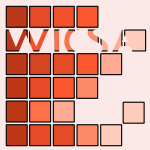 WICSA-2004-Perez-MartinezS #analysis #architecture #heuristic
WICSA-2004-Perez-MartinezS #analysis #architecture #heuristic- Heuristics for the Transition from Analysis to Software Architecture (JEPM, ASA), pp. 311–314.
 DAC-2004-LiRP #fault #generative #on the #testing
DAC-2004-LiRP #fault #generative #on the #testing- On test generation for transition faults with minimized peak power dissipation (WL, SMR, IP), pp. 504–509.
 DAC-2004-Pomeranz04a
DAC-2004-Pomeranz04a- Scan-BIST based on transition probabilities (IP), pp. 940–943.
 DATE-v1-2004-KretzschmarNM #power management #why
DATE-v1-2004-KretzschmarNM #power management #why- Why Transition Coding for Power Minimization of On-Chip Buses Does Not Work (CK, AKN, DM), pp. 512–517.
 ICALP-2004-AlfaroFS #branch #linear #metric
ICALP-2004-AlfaroFS #branch #linear #metric- Linear and Branching Metrics for Quantitative Transition Systems (LdA, MF, MS), pp. 97–109.
 SEFM-2004-LanotteMT #decidability #parametricity #probability #security
SEFM-2004-LanotteMT #decidability #parametricity #probability #security- Decidability Results for Parametric Probabilistic Transition Systems with an Application to Security (RL, AMS, AT), pp. 114–121.
 SEFM-2004-LiYW #distributed #multi #testing
SEFM-2004-LiYW #distributed #multi #testing- Distributed Testing of Multi Input/Output Transition System (ZL, XY, JW), pp. 271–280.
 ICML-2004-BaskiotisS #approach
ICML-2004-BaskiotisS #approach- C4.5 competence map: a phase transition-inspired approach (NB, MS).
 ICPR-v3-2004-KuijperO #set #symmetry
ICPR-v3-2004-KuijperO #set #symmetry- Transitions of the Pre-Symmetry Set (AK, OFO), pp. 190–193.
 ICPR-v3-2004-LeymarieKG #towards
ICPR-v3-2004-LeymarieKG #towards- Towards Surface Regularization via Medial Axis Transitions (FFL, BBK, PJG), pp. 123–126.
 KR-2004-MailheP #fuzzy #knowledge base
KR-2004-MailheP #fuzzy #knowledge base- Updating of a Possibilistic Knowledge Base by Crisp or Fuzzy Transition Rules (BM, HP), pp. 338–347.
 KR-2004-Rintanen #case study
KR-2004-Rintanen #case study- Phase Transitions in Classical Planning: An Experimental Study (JR), pp. 710–719.
 SAC-2004-Chen #algorithm #transitive
SAC-2004-Chen #algorithm #transitive- A new algorithm for computing transitive closures (YC), pp. 1091–1092.
 CSL-2004-ImmermanRRSY #bound #decidability #logic #transitive
CSL-2004-ImmermanRRSY #bound #decidability #logic #transitive- The Boundary Between Decidability and Undecidability for Transitive-Closure Logics (NI, AMR, TWR, SS, GY), pp. 160–174.
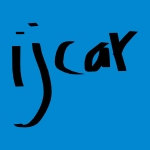 IJCAR-2004-KazakovN #transitive
IJCAR-2004-KazakovN #transitive- A Resolution Decision Procedure for the Guarded Fragment with Transitive Guards (YK, HdN), pp. 122–136.
 LICS-2004-Huth #lts
LICS-2004-Huth #lts- Beyond Image-Finiteness: Labelled Transition Systems as a Stone Space (MH), pp. 222–231.
 LICS-2004-PodelskiR #invariant
LICS-2004-PodelskiR #invariant- Transition Invariants (AP, AR), pp. 32–41.
 LICS-2004-WohrleT #infinity #model checking
LICS-2004-WohrleT #infinity #model checking- Model Checking Synchronized Products of Infinite Transition Systems (SW, WT), pp. 2–11.
 TestCom-2004-LiWY #multi #testing
TestCom-2004-LiWY #multi #testing- Testing Multi Input/Output Transition System with All-Observer (ZL, JW, XY), pp. 95–111.
 DAC-2003-LiXC #architecture #modelling #optimisation #power management #scalability
DAC-2003-LiXC #architecture #modelling #optimisation #power management #scalability- Scalable modeling and optimization of mode transitions based on decoupled power management architecture (DL, QX, PHC), pp. 119–124.
 FASE-2003-SharyginaB #abstraction #model checking
FASE-2003-SharyginaB #abstraction #model checking- Model Checking Software via Abstraction of Loop Transitions (NS, JCB), pp. 325–340.
 FoSSaCS-2003-Kieronski #transitive
FoSSaCS-2003-Kieronski #transitive- The Two-Variable Guarded Fragment with Transitive Guards Is 2EXPTIME-Hard (EK), pp. 299–312.
 FME-2003-MussetR #linear
FME-2003-MussetR #linear- Computing Meta-transitions for Linear Transition Systems with Polynomials (JM, MR), pp. 562–581.
 SEKE-2003-DongFH #diagrams #statechart
SEKE-2003-DongFH #diagrams #statechart- Deriving Hierarchical Predicate/Transition Nets from Statechart Diagrams (ZD, YF, XH), pp. 150–157.
 POPL-2003-JensenM #graph
POPL-2003-JensenM #graph- Bigraphs and transitions (OHJ, RM), pp. 38–49.
 SAC-2003-BorgerRC #concurrent #modelling #state machine #uml
SAC-2003-BorgerRC #concurrent #modelling #state machine #uml- Modeling the Meaning of Transitions from and to Concurrent States in UML State Machines (EB, ER, AC), pp. 1086–1091.
 SAC-2003-Traore #object-oriented #testing
SAC-2003-Traore #object-oriented #testing- A Transition-based Strategy for Object-oriented Software Testing (IT), pp. 1055–1062.
 ESEC-FSE-2003-UchitelKM #behaviour #lts #using
ESEC-FSE-2003-UchitelKM #behaviour #lts #using- Behaviour model elaboration using partial labelled transition systems (SU, JK, JM), pp. 19–27.
 CAV-2003-BardinFLP #named #performance
CAV-2003-BardinFLP #named #performance- FAST: Fast Acceleration of Symbolikc Transition Systems (SB, AF, JL, LP), pp. 118–121.
 ICLP-2003-ZhaoL #case study #programming #set #source code
ICLP-2003-ZhaoL #case study #programming #set #source code- Answer Set Programming Phase Transition: A Study on Randomly Generated Programs (YZ, FL), pp. 239–253.
 TestCom-2003-PetrenkoYH #testing
TestCom-2003-PetrenkoYH #testing- Testing Transition Systems with Input and Output Testers (AP, NY, JH), pp. 129–145.
 DATE-2002-HuangLWG #constraints
DATE-2002-HuangLWG #constraints- Maze Routing with Buffer Insertion under Transition Time Constraints (LDH, ML, DFW, YG), pp. 702–707.
 FoSSaCS-2002-FerrariMP #algebra #calculus
FoSSaCS-2002-FerrariMP #algebra #calculus- Minimizing Transition Systems for Name Passing Calculi: A Co-algebraic Formulation (GLF, UM, MP), pp. 129–158.
 FoSSaCS-2002-Srba #commutative
FoSSaCS-2002-Srba #commutative- Note on the Tableau Technique for Commutative Transition Systems (JS), pp. 387–401.
 TACAS-2002-Mateescu #calculus #lts #model checking #μ-calculus
TACAS-2002-Mateescu #calculus #lts #model checking #μ-calculus- Local Model-Checking of Modal μ-Calculus on Acyclic Labeled Transition Systems (RM), pp. 281–295.
 STOC-2002-BaswanaHS #algorithm #maintenance #transitive
STOC-2002-BaswanaHS #algorithm #maintenance #transitive- Improved decremental algorithms for maintaining transitive closure and all-pairs shortest paths (SB, RH, SS), pp. 117–123.
 IFM-2002-KorenblatGK #petri net
IFM-2002-KorenblatGK #petri net- Translations between Textual Transition Systems and Petri Nets (KK, OG, SK), pp. 339–359.
 ICGT-2002-Varro #semantics #uml
ICGT-2002-Varro #semantics #uml- A Formal Semantics of UML Statecharts by Model Transition Systems (DV), pp. 378–392.
 KR-2002-BaralST
KR-2002-BaralST- A Transition Function Based Characterization of Actions with Delayed and Continuous Effects (CB, TCS, LCT), pp. 291–302.
 SEKE-2002-XuVIY #behaviour #modelling #multi #using #verification
SEKE-2002-XuVIY #behaviour #modelling #multi #using #verification- Modeling and verifying multi-agent behaviors using predicate/transition nets (DX, RAV, TRI, JY), pp. 193–200.
 CAV-2002-KurshanLY #model checking
CAV-2002-KurshanLY #model checking- Compressing Transitions for Model Checking (RPK, VL, HY), pp. 569–581.
 LICS-2002-Otto #finite #theorem
LICS-2002-Otto #finite #theorem- Modal and Guarded Characterisation Theorems over Finite Transition Systems (MO), p. 371–?.
 SAT-2002-SlaneyW #behaviour #optimisation
SAT-2002-SlaneyW #behaviour #optimisation- Phase Transition Behavior: From Decision to Optimization (JS, TW), p. 4.
 VMCAI-2002-Huth #model checking #using
VMCAI-2002-Huth #model checking #using- Model Checking Modal Transition Systems Using Kripke Structures (MH), pp. 302–316.
 DAC-2001-LinC #graph #named #representation #transitive
DAC-2001-LinC #graph #named #representation #transitive- TCG: A Transitive Closure Graph-Based Representation for Non-Slicing Floorplans (JML, YWC), pp. 764–769.
 DATE-2001-SarkarK #constraints
DATE-2001-SarkarK #constraints- Repeater block planning under simultaneous delay and transition time constraints (PS, CKK), pp. 540–545.
 DATE-2001-VareaA #embedded #modelling #petri net #specification
DATE-2001-VareaA #embedded #modelling #petri net #specification- Dual transitions petri net based modelling technique for embedded systems specification (MV, BMAH), pp. 566–571.
 ICDAR-2001-VielhauerSM #transitive #verification
ICDAR-2001-VielhauerSM #transitive #verification- Transitivity Based Enrollment Strategy for Signature Verification (CV, RS, AM), p. 1263–?.
 ESOP-2001-HuthJS #program analysis
ESOP-2001-HuthJS #program analysis- Modal Transition Systems: A Foundation for Three-Valued Program Analysis (MH, RJ, DAS), pp. 155–169.
 ICALP-2001-BreugelW #probability #towards #verification
ICALP-2001-BreugelW #probability #towards #verification- Towards Quantitative Verification of Probabilistic Transition Systems (FvB, JW), pp. 421–432.
 MLDM-2001-JangKC #detection #fuzzy
MLDM-2001-JangKC #detection #fuzzy- FAM-Based Fuzzy Inference for Detecting Shot Transitions (SWJ, GYK, HIC), pp. 52–61.
 TOOLS-USA-2001-Henderson-SellersS #object-oriented #process
TOOLS-USA-2001-Henderson-SellersS #object-oriented #process- Transitioning to an Object-Oriented Process (BHS, MS), p. 381.
 SAIG-2001-DamianD
SAIG-2001-DamianD- Static Transition Compression (DD, OD), pp. 92–107.
 LICS-2001-DasD #approximate
LICS-2001-DasD #approximate- Successive Approximation of Abstract Transition Relations (SD, DLD), pp. 51–58.
 LICS-2001-Jeffrey #induction #lts #type system
LICS-2001-Jeffrey #induction #lts #type system- A Symbolic Labelled Transition System for Coinductive Subtyping of Fμ≤ Types (AJ), pp. 323–333.
 LICS-2001-SzwastT #on the #problem #transitive
LICS-2001-SzwastT #on the #problem #transitive- On the Decision Problem for the Guarded Fragment with Transitivity (WS, LT), pp. 147–156.
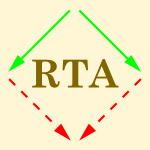 RTA-2001-Struth #calculus #transitive
RTA-2001-Struth #calculus #transitive- Deriving Focused Calculi for Transitive Relations (GS), pp. 291–305.
 PODS-2000-GeertsK #approximate #database #linear #logic #transitive #using
PODS-2000-GeertsK #approximate #database #linear #logic #transitive #using- Linear Approximation of Planar Spatial Databases Using Transitive-Closure Logic (FG, BK), pp. 126–135.
 VLDB-2000-Carey #industrial #research
VLDB-2000-Carey #industrial #research- Toto, We’re Not in Kansas Anymore: On Transitioning from Research to the Real (Invited Industrial Talk) (MJC), p. 733.
 FASE-2000-GruerHK #design #network #problem #specification #using #verification
FASE-2000-GruerHK #design #network #problem #specification #using #verification- Verification of Object-Z Specifications by Using Transition Systems: Application to the Radiomobile Network Design Problem (PG, VH, AK), pp. 222–236.
 TACAS-2000-JonssonN #infinity #transitive #verification
TACAS-2000-JonssonN #infinity #transitive #verification- Transitive Closures of Regular Relations for Verifying Infinite-State Systems (BJ, MN), pp. 220–234.
 ICALP-2000-LugiezS #decidability #first-order #logic
ICALP-2000-LugiezS #decidability #first-order #logic- Decidable First-Order Transition Logics for PA-Processes (DL, PS), pp. 342–353.
 ICML-2000-GiordanaSSB #framework #learning #relational
ICML-2000-GiordanaSSB #framework #learning #relational- Analyzing Relational Learning in the Phase Transition Framework (AG, LS, MS, MB), pp. 311–318.
 ICML-2000-GrudicU #policy
ICML-2000-GrudicU #policy- Localizing Policy Gradient Estimates to Action Transition (GZG, LHU), pp. 343–350.
 KR-2000-HaarslevM #reasoning #strict #transitive
KR-2000-HaarslevM #reasoning #strict #transitive- Expressive ABox Reasoning with Number Restrictions, Role Hierarchies, and Transitively Closed Roles (VH, RM), pp. 273–284.
 HPCA-2000-HaungsSF #analysis #branch #classification #metric
HPCA-2000-HaungsSF #analysis #branch #classification #metric- Branch Transition Rate: A New Metric for Improved Branch Classification Analysis (MH, PS, MKF), pp. 241–250.
 CAV-2000-BryantV #constraints #satisfiability #transitive
CAV-2000-BryantV #constraints #satisfiability #transitive- Boolean Satisfiability with Transitivity Constraints (REB, MNV), pp. 85–98.
 CL-2000-LeuschelL #deduction #petri net
CL-2000-LeuschelL #deduction #petri net- Coverability of Reset Petri Nets and Other Well-Structured Transition Systems by Partial Deduction (ML, HL), pp. 101–115.
 LICS-2000-LemstromH #approximate #logic #pattern matching #transitive
LICS-2000-LemstromH #approximate #logic #pattern matching #transitive- Approximate Pattern Matching is Expressible in Transitive Closure Logic (KL, LH), pp. 157–167.
 DATE-1999-CabodiCPQ #simulation
DATE-1999-CabodiCPQ #simulation- Computing Timed Transition Relations for Sequential Cycle-Based Simulation (GC, PC, CP, SQ), pp. 8–12.
 DATE-1999-MurgaiF #on the
DATE-1999-MurgaiF #on the- On Reducing Transitions Through Data Modifications (RM, MF), p. 82–?.
 STOC-1999-KingS #algorithm #maintenance #transitive
STOC-1999-KingS #algorithm #maintenance #transitive- A Fully Dynamic Algorithm for Maintaining the Transitive Closure (VK, GS), pp. 492–498.
 FM-v1-1999-BarbutiFSV #abstraction #model checking #realtime
FM-v1-1999-BarbutiFSV #abstraction #model checking #realtime- Formula Based Abstractions of Transition Systems for Real-Time Model Checking (RB, NDF, AS, GV), pp. 289–306.
 IFL-1999-AchtenP #implementation #interactive
IFL-1999-AchtenP #implementation #interactive- The Implementation of Interactive Local State Transition Systems in Clean (PA, MJP), pp. 115–130.
 SIGAda-1999-Wisniewski #ada
SIGAda-1999-Wisniewski #ada- Transitioning an ASIS application: version 1 to Ada95 2.0 (JRW), pp. 53–65.
 ICEIS-1999-HartW #aspect-oriented
ICEIS-1999-HartW #aspect-oriented- Re-Arranging the Chairs: Tackling the Ownership Aspects of Organizational Transition and Infomation Systems Support (DH, GKW), pp. 443–451.
 TOOLS-EUROPE-1999-PourGF #component #development #enterprise
TOOLS-EUROPE-1999-PourGF #component #development #enterprise- Making the Transition to Component-Based Enterprise Software Development: Overcoming the Obstacles 3/4 Patterns for Success (GP, MLG, JMF), p. 419.
 TOOLS-USA-1999-GrissPF #component #development #enterprise
TOOLS-USA-1999-GrissPF #component #development #enterprise- Making the Transition to Component-Based Enterprise Software Development Overcoming the Obstacles — Patterns for Success (MLG, GP, JMF), pp. 527–531.
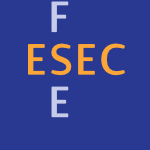 ESEC-FSE-1999-BayerGWDA #architecture #legacy #product line
ESEC-FSE-1999-BayerGWDA #architecture #legacy #product line- Transitioning Legacy Assets to a Product Line Architecture (JB, JFG, MW, JMD, MA), pp. 446–463.
 LICS-1999-GanzingerMV #transitive
LICS-1999-GanzingerMV #transitive- The Two-Variable Guarded Fragment with Transitive Relations (HG, CM, MV), pp. 24–34.
 LICS-1999-Ruhl #transitive
LICS-1999-Ruhl #transitive- Counting and Addition Cannot Express Deterministic Transitive Closure (MR), pp. 326–334.
 DAC-1998-MurgaiFO #using
DAC-1998-MurgaiFO #using- Using Complementation and Resequencing to Minimize Transitions (RM, MF, ALO), pp. 694–697.
 DATE-1998-KassabCAK #analysis #constraints
DATE-1998-KassabCAK #analysis #constraints- Propagation of Last-Transition-Time Constraints in Gate-Level Timing Analysis (MK, EC, SA, THK), pp. 796–802.
 HT-1998-ZellwegerCM #incremental
HT-1998-ZellwegerCM #incremental- Fluid Links for Informed and Incremental Link Transitions (PZ, BWC, JDM), pp. 50–57.
 TACAS-1998-AlurHR
TACAS-1998-AlurHR- Symbolic Exploration of transition Hierarchies (RA, TAH, SKR), pp. 330–344.
 WRLA-1998-CarabettaDG #logic #semantics
WRLA-1998-CarabettaDG #logic #semantics- CCS semantics via proved transition systems and rewriting logic (GC, PD, FG), pp. 369–387.
 TAGT-1998-EhrigHLOPR #framework #graph #rule-based
TAGT-1998-EhrigHLOPR #framework #graph #rule-based- Double-Pullback Graph Transitions: A Rule-Based Framework with Incomplete Information (HE, RH, ML, FO, JP, GR), pp. 85–102.
 KDD-1998-DuMouchelS #algorithm #detection #performance #testing
KDD-1998-DuMouchelS #algorithm #detection #performance #testing- A Fast Computer Intrusion Detection Algorithm Based on Hypothesis Testing of Command Transition Probabilities (WD, MS), pp. 189–193.
 ICRE-1998-FowlerCM #empirical #requirements
ICRE-1998-FowlerCM #empirical #requirements- Transition Packages: An Experiment in Expediting the Introduction of Requirements Management (PJF, ADC, BM), p. 138–?.
 SAC-1998-BonsangueKBJ #architecture #distributed #semantics
SAC-1998-BonsangueKBJ #architecture #distributed #semantics- A software architecture for distributed control systems and its transition system semantics (MMB, JNK, MB, EDdJ), pp. 159–168.
 IWTCS-1998-BrinksmaHT #generative #multi #testing
IWTCS-1998-BrinksmaHT #generative #multi #testing- Factorized Test Generation for Multi-Input/Output Transition Systems (EB, LH, JT), pp. 67–82.
 LICS-1998-JohnstonePTWW #algebra #axiom #category theory
LICS-1998-JohnstonePTWW #algebra #axiom #category theory- An Axiomatics for Categories of Transition Systems as Coalgebras (PJ, JP, TT, HW, JW), pp. 207–213.
 DAC-1997-RamprasadSH #estimation #process #statistics
DAC-1997-RamprasadSH #estimation #process #statistics- Analytical Estimation of Transition Activity From Word-Level Signal Statistics (SR, NRS, INH), pp. 582–587.
 ITiCSE-WGR-1997-BogoiavlenskiPS #education
ITiCSE-WGR-1997-BogoiavlenskiPS #education- Use of computing curricula 1991 for transition from “Mathematics” to “Applied Mathematics and CS” baccalaureate programme (poster) (IAB, AAP, GSS, AVV), p. 144.
 ICALP-1997-VinkR #algebra #approach #bisimulation #probability
ICALP-1997-VinkR #algebra #approach #bisimulation #probability- Bisimulation for Probabilistic Transition Systems: A Coalgebraic Approach (EPdV, JJMMR), pp. 460–470.
 HCI-SEC-1997-GunjiKK #using
HCI-SEC-1997-GunjiKK #using- Quick Address Search System with Handwriting Using Character Transition Information (KG, SK, KK), pp. 423–426.
 TRI-Ada-1997-ChamillardH #ada
TRI-Ada-1997-ChamillardH #ada- Transitioning to Ada in an Introductory Course for Non-Majors (ATC, WCHJ), pp. 37–40.
 CAV-1997-ImmermanV #logic #model checking #transitive
CAV-1997-ImmermanV #logic #model checking #transitive- Model Checking and Transitive-Closure Logic (NI, MYV), pp. 291–302.
 DAC-1996-ChandramouliS #modelling #proximity
DAC-1996-ChandramouliS #modelling #proximity- Modeling the Effects of Temporal Proximity of Input Transitions on Gate Propagation Delay and Transition Time (VC, KAS), pp. 617–622.
 KBSE-1996-HoweP #behaviour #modelling
KBSE-1996-HoweP #behaviour #modelling- Constructing Transition Models of AI Planner Behavior (AEH, LDP), p. 8.
 ESOP-1996-Goubault #concurrent
ESOP-1996-Goubault #concurrent- Durations for Truly-Concurrent Transitions (EG), pp. 173–187.
 ICALP-1996-Caucal #decidability #graph #infinity #monad #on the
ICALP-1996-Caucal #decidability #graph #infinity #monad #on the- On Infinite Transition Graphs Having a Decidable Monadic Theory (DC), pp. 194–205.
 ICALP-1996-Glabbeek #specification
ICALP-1996-Glabbeek #specification- The Meaning of Negative Premises in Transition System Specifications II (RJvG), pp. 502–513.
 AdaEurope-1996-FeithT #ada #realtime #scalability
AdaEurope-1996-FeithT #ada #realtime #scalability- Planning the Transition to Ada 95 for a Large Real-Time Project (RF, MT), pp. 500–511.
 KR-1996-LeeG #parallel #reasoning #relational #transitive
KR-1996-LeeG #parallel #reasoning #relational #transitive- Parallel Transitive Reasoning in Mixed Relational Hierarchies (YL, JG), pp. 576–587.
 CAV-1996-MillerK
CAV-1996-MillerK- Saving Space by Fully Exploiting Invisible Transitions (HM, SK), pp. 336–347.
 LICS-1996-CattaniS #higher-order
LICS-1996-CattaniS #higher-order- Higher Dimensional Transition Systems (GLC, VS), pp. 55–62.
 LICS-1996-Seidl #calculus #μ-calculus
LICS-1996-Seidl #calculus #μ-calculus- A Modal μ-Calculus for Durational Transition Systems (HS), pp. 128–137.
 TACAS-1995-Janssen #design #distributed
TACAS-1995-Janssen #design #distributed- Layers as Knowledge Transitions in the Design of Distributed Systems (WJ), pp. 238–263.
 TACAS-1995-LarsenSW #constraints #proving
TACAS-1995-LarsenSW #constraints #proving- A Constraint Oriented Proof Methodology Based on Modal Transition Systems (KGL, BS, CW), pp. 17–40.
 LICS-1995-EtessamiI #transitive
LICS-1995-EtessamiI #transitive- Tree Canonization and Transitive Closure (KE, NI), pp. 331–341.
 DAC-1994-TsuiPD #approximate
DAC-1994-TsuiPD #approximate- Exact and Approximate Methods for Calculating Signal and Transition Probabilities in FSMs (CYT, MP, AMD), pp. 18–23.
 EDAC-1994-AkitaA #logic #power management #probability
EDAC-1994-AkitaA #logic #power management #probability- A Method for Reducing Power Consumption of CMOS Logic Based on Signal Transition Probability (JA, KA), pp. 420–424.
 EDAC-1994-BanerjeeRCP #graph transformation
EDAC-1994-BanerjeeRCP #graph transformation- Signal Transition Graph Transformations for Initializability (SB, RKR, STC, DKP), p. 670.
 EDAC-1994-VanbekbergenYLM #graph #interface #specification
EDAC-1994-VanbekbergenYLM #graph #interface #specification- A Generalized Signal Transition Graph Model for Specification of Complex Interfaces (PV, CYC, BL, HDM), pp. 378–384.
 PODS-1994-SuciuP #algebra #algorithm #exponential #set #transitive
PODS-1994-SuciuP #algebra #algorithm #exponential #set #transitive- Any Algorithm in the Complex Object Algebra with Powerset Needs Exponential Space to Compute Transitive Closure (DS, JP), pp. 201–209.
 SIGMOD-1994-DarR #algorithm #performance #transitive
SIGMOD-1994-DarR #algorithm #performance #transitive- A Performance Study of Transitive Closure Algorithms (SD, RR), pp. 454–465.
 SIGMOD-1994-Vaskevitch #database
SIGMOD-1994-Vaskevitch #database- Database in Crisis and Transition: A Technical Agenda for the Year 2001 (DV), pp. 484–489.
 ICALP-1994-AsarinM #on the
ICALP-1994-AsarinM #on the- On some Relations between Dynamical Systems and Transition Systems (EA, OM), pp. 59–72.
 ICALP-1994-Breugel #lts
ICALP-1994-Breugel #lts- Generalized Finiteness Conditions of Labelled Transition Systems (FvB), pp. 376–387.
 ICRE-1994-MorganS #specification
ICRE-1994-MorganS #specification- Transitioning to rigorous software specification (NWM, CS), pp. 110–117.
 ICSE-1994-TakadaMT #debugging #performance #process #testing
ICSE-1994-TakadaMT #debugging #performance #process #testing- A Programmer Performance Measure Based on Programmer State Transitions in Testing and Debugging Process (YT, KiM, KT), pp. 123–132.
 CAV-1994-GeistB #automation #model checking #performance
CAV-1994-GeistB #automation #model checking #performance- Efficient Model Checking by Automated Ordering of Transition Relation Partitions (DG, IB), pp. 299–310.
 LICS-1994-BachmairG #transitive
LICS-1994-BachmairG #transitive- Rewrite Techniques for Transitive Relations (LB, HG), pp. 384–393.
 DAC-1993-MatsunagaMB #on the #transitive
DAC-1993-MatsunagaMB #on the #transitive- On Computing the Transitive Closure of a State Transition Relation (YM, PCM, RKB), pp. 260–265.
 VLDB-1993-HoutsmaWF #algorithm #evaluation #implementation #parallel #performance #transitive
VLDB-1993-HoutsmaWF #algorithm #evaluation #implementation #parallel #performance #transitive- Implementation and Performance Evaluation of a Parallel Transitive Closure Algorithm on PRISMA/DB (MAWH, ANW, JF), pp. 206–217.
 CSM-1993-PigoskiL #case study #experience #maintenance
CSM-1993-PigoskiL #case study #experience #maintenance- Software Maintenance Training: Transition Experiences (TMP, CSL), pp. 314–318.
 CSM-1993-RugaberD #cobol #generative #source code
CSM-1993-RugaberD #cobol #generative #source code- The Transition of Application Programs From COBOL to a Fourth Generation Language (SR, SD), pp. 61–70.
 ICALP-1993-InverardiPY #bisimulation #parametricity
ICALP-1993-InverardiPY #bisimulation #parametricity- Extended Transition Systems for Parametric Bisimulation (PI, CP, DY), pp. 558–569.
 CAV-1993-YannakakisL #algorithm #performance #realtime
CAV-1993-YannakakisL #algorithm #performance #realtime- An Efficient Algorithm for Minimizing Real-time Transition Systems (MY, DL), pp. 210–224.
 DAC-1992-DevadasKMW #logic #verification
DAC-1992-DevadasKMW #logic #verification- Certified Timing Verification and the Transition Delay of a Logic Circuit (SD, KK, SM, ARW), pp. 549–555.
 DAC-1992-LavagnoMBS #graph #problem
DAC-1992-LavagnoMBS #graph #problem- Solving the State Assignment Problem for Signal Transition Graphs (LL, CWM, RKB, ALSV), pp. 568–572.
 STOC-1992-LeeY #online
STOC-1992-LeeY #online- Online Minimization of Transition Systems (Extended Abstract) (DL, MY), pp. 264–274.
 ICALP-1992-Vogler #communication #petri net #refinement
ICALP-1992-Vogler #communication #petri net #refinement- Asynchronous Communication of Petri Nets and the Refinement of Transitions (WV), pp. 605–616.
 TRI-Ada-C-1992-Frankel #analysis #architecture #modelling
TRI-Ada-C-1992-Frankel #analysis #architecture #modelling- Analysis/Architecture Models to ASG Models: Enabling the Transition (MIF), pp. 220–231.
 ML-1992-McCallum #learning #performance #proximity #using
ML-1992-McCallum #learning #performance #proximity #using- Using Transitional Proximity for Faster Reinforcement Learning (AM), pp. 316–321.
 CSL-1992-Fernando #comparative #semantics
CSL-1992-Fernando #comparative #semantics- Comparative Transition System Semantics (TF), pp. 149–166.
 IWPTS-1992-GhedamsiDB #fault #finite #nondeterminism #state machine #testing
IWPTS-1992-GhedamsiDB #fault #finite #nondeterminism #state machine #testing- Diagnostic Tests for Single Transition Faults in Non-Deterministic Finite State Machines (AG, RD, GvB), pp. 105–116.
 LICS-1992-GraedelM #logic #nondeterminism #transitive
LICS-1992-GraedelM #logic #nondeterminism #transitive- Deterministic vs. Nondeterministic Transitive Closure Logic (EG, GLM), pp. 58–63.
 DAC-1991-ChakradharA #algorithm #generative #testing #transitive
DAC-1991-ChakradharA #algorithm #generative #testing #transitive- A Transitive Closure Based Algorithm for Test Generation (STC, VDA), pp. 353–358.
 DAC-1991-Najm #probability #process
DAC-1991-Najm #probability #process- Transition Density, A Stochastic Measure of Activity in Digital Circuits (FNN), pp. 644–649.
 DAC-1991-PomeranzR #fault #on the #using
DAC-1991-PomeranzR #fault #on the #using- On Achieving a Complete Fault Coverage for Sequential Machines Using the Transition Fault Model (IP, SMR), pp. 341–346.
 PODS-1991-Jakobsson #algorithm #transitive
PODS-1991-Jakobsson #algorithm #transitive- Mixed-Approach Algorithms for Transitive Closure (HJ), pp. 199–205.
 STOC-1991-Babai #finite #generative #graph #random #transitive
STOC-1991-Babai #finite #generative #graph #random #transitive- Local Expansion of Vertex-Transitive Graphs and Random Generation in Finite Groups (LB), pp. 164–174.
 ICALP-1991-BolG #specification
ICALP-1991-BolG #specification- The Meaning of Negative Premises in Transition System Specifications (RNB, JFG), pp. 481–494.
 CSL-1991-BarguryM #automaton #multi #power of #transitive
CSL-1991-BarguryM #automaton #multi #power of #transitive- The Expressive Power of Transitive Closue and 2-way Multihead Automata (YB, JAM), pp. 1–14.
 CSL-1991-Gradel #logic #on the #transitive
CSL-1991-Gradel #logic #on the #transitive- On Transitive Closure Logic (EG), pp. 149–163.
 CSL-1991-Tyszkiewicz #logic #query #transitive
CSL-1991-Tyszkiewicz #logic #query #transitive- Infinitary Queries and Their Asymptotic Probabilities I: Properties Definable in Transitive Closue Logic (JT), pp. 396–410.
 SIGMOD-1990-UllmanY #complexity #transitive
SIGMOD-1990-UllmanY #complexity #transitive- The Input/Output Complexity of Transitive Closure (JDU, MY), pp. 44–53.
 VLDB-1990-AgrawalJ #algorithm #hybrid #transitive
VLDB-1990-AgrawalJ #algorithm #hybrid #transitive- Hybrid Transitive Closure Algorithms (RA, HVJ), pp. 326–334.
 VLDB-1990-CheineyM #clustering #parallel #transitive
VLDB-1990-CheineyM #clustering #parallel #transitive- A Parallel Strategy for Transitive Closure usind Double Hash-Based Clustering (JPC, CdM), pp. 347–358.
 VLDB-1990-HoutsmaAC #approach #distributed #set #transitive
VLDB-1990-HoutsmaAC #approach #distributed #set #transitive- Distributed Transitive Closure Computations: The Disconnection Set Approach (MAWH, PMGA, SC), pp. 335–346.
 STOC-1990-KaoK #algorithm #graph #parallel #performance #towards #transitive
STOC-1990-KaoK #algorithm #graph #parallel #performance #towards #transitive- Towards Overcoming the Transitive-Closure Bottleneck: Efficient Parallel Algorithms for Planar Digraphs (MYK, PNK), pp. 181–192.
 ALP-1990-Lescanne #implementation
ALP-1990-Lescanne #implementation- Implementations of Completion by Transition Rules + Control: ORME (PL), pp. 262–269.
 CADE-1990-Lescanne #implementation #named #set
CADE-1990-Lescanne #implementation #named #set- ORME: An Implementation of Completion Procedures as Sets of Transition Rules (PL), pp. 661–662.
 LICS-1990-LarsenX #equation #using
LICS-1990-LarsenX #equation #using- Equation Solving Using Modal Transition Systems (KGL, LX), pp. 108–117.
 NACLP-1990-CorradiniM #algebra #logic programming #semantics #source code
NACLP-1990-CorradiniM #algebra #logic programming #semantics #source code- An Algebraic Semantics of Logic Programs as Structured Transition Systems (AC, UM), pp. 788–812.
 SIGMOD-1989-AgrawalBJ #knowledge base #performance #scalability #transitive
SIGMOD-1989-AgrawalBJ #knowledge base #performance #scalability #transitive- Efficient Management of Transitive Relationships in Large Data and Knowledge Bases (RA, AB, HVJ), pp. 253–262.
 SIGMOD-1989-Cohen #compilation #database
SIGMOD-1989-Cohen #compilation #database- Compiling Complex Database Transition Triggers (DC), pp. 225–234.
 VLDB-1989-LiptonN #transitive
VLDB-1989-LiptonN #transitive- Estimating the Size of Generalized Transitive Closures (RJL, JFN), pp. 165–171.
 SEKE-1989-HeL #logic #petri net #specification
SEKE-1989-HeL #logic #petri net #specification- Deriving Temporal Logic Specifications from Predicate Transition Petri Net (XH, JANL), pp. 116–121.
 PODS-1988-SippuS #query #relational #transitive
PODS-1988-SippuS #query #relational #transitive- A Generalized Transitive Closure for Relational Queries (SS, ESS), pp. 325–332.
 VLDB-1988-IoannidisR #algorithm #performance #transitive
VLDB-1988-IoannidisR #algorithm #performance #transitive- Efficient Transitive Closure Algorithms (YEI, RR), pp. 382–394.
 ICALP-1988-Diekert #commutative #for free #monad #transitive
ICALP-1988-Diekert #commutative #for free #monad #transitive- Transitive Orientations, Möbius Functions, and Complete Semi-Thue Systems for Free Partially Commutative Monoids (VD), pp. 176–187.
 ICALP-1988-RudichB #morphism #transitive
ICALP-1988-RudichB #morphism #transitive- Optimal Circuits and Transitive Automorphism Groups (SR, LB), pp. 516–524.
 ICALP-1988-Simon #on the #reduction #transitive
ICALP-1988-Simon #on the #reduction #transitive- On Minimum Flow and Transitive Reduction (KS), pp. 535–546.
 DAC-1987-SchultzB #fault #simulation
DAC-1987-SchultzB #fault #simulation- Accelerated Transition Fault Simulation (MHS, FB), pp. 237–243.
 SIGMOD-1987-JagadishAN #case study #recursion #transitive
SIGMOD-1987-JagadishAN #case study #recursion #transitive- A Study of Transitive Closure As a Recursion Mechanism (HVJ, RA, LN), pp. 331–344.
 VLDB-1987-AgrawalJ #algorithm #database #transitive
VLDB-1987-AgrawalJ #algorithm #database #transitive- Direct Algorithms for Computing the Transitive Closure of Database Relations (RA, HVJ), pp. 255–266.
 VLDB-1987-Lu #database #transitive
VLDB-1987-Lu #database #transitive- New Strategies for Computing the Transitive Closure of a Database Relation (HL), pp. 267–274.
 ICALP-1987-Finkel
ICALP-1987-Finkel- A Generalization of the Procedure of Karp and Miller to Well Structured Transition Systems (AF), pp. 499–508.
 POPL-1987-Stark #concurrent #network #process #semantics
POPL-1987-Stark #concurrent #network #process #semantics- Concurrent Transition System Semantics of Process Networks (EWS), pp. 199–210.
 VLDB-1986-Ioannidis #on the #relational #transitive
VLDB-1986-Ioannidis #on the #relational #transitive- On the Computation of the Transitive Closure of Relational Operators (YEI), pp. 403–411.
 ICALP-1986-Simon #algorithm #graph #transitive
ICALP-1986-Simon #algorithm #graph #transitive- An Improved Algorithm for Transitive Closure on Acyclic Digraphs (KS), pp. 376–386.
 STOC-1985-BakkerMOZ #concurrent #semantics
STOC-1985-BakkerMOZ #concurrent #semantics- Transition Systems, Infinitary Languages and the Semantics of Uniform Concurrency (JWdB, JJCM, ERO, JIZ), pp. 252–262.
 STOC-1984-Gerth #composition #how #logic
STOC-1984-Gerth #composition #how #logic- Transition Logic: How to Reason About Temporal Properties in a Compositional Way (RG), pp. 39–50.
 STOC-1983-Spinrad #transitive
STOC-1983-Spinrad #transitive- Transitive Orientation in O(n²) Time (JPS), pp. 457–466.
 ICALP-1983-Arnold #behaviour #infinity
ICALP-1983-Arnold #behaviour #infinity- Topological Characterizations of Infinite Behaviours of Transition Systems (AA), pp. 28–38.
 ICALP-1983-GoltzR #process
ICALP-1983-GoltzR #process- Processes of Place/Transition-Nets (UG, WR), pp. 264–277.
 ICALP-1982-Sifakis #invariant
ICALP-1982-Sifakis #invariant- Global and Local Invariants in Transition Systems (JS), pp. 510–522.
 SIGMOD-1980-ParkerP #dependence #embedded #multi #transitive
SIGMOD-1980-ParkerP #dependence #embedded #multi #transitive- Inferences Involving Embedded Multivalued Dependencies and Transitive Dependencies (DSPJ, KPG), pp. 52–57.
 STOC-1980-Tompa80a #algorithm #implementation #polynomial #sublinear #transitive
STOC-1980-Tompa80a #algorithm #implementation #polynomial #sublinear #transitive- Two Familiar Transitive Closure Algorithms which Admit No Polynomial Time, Sublinear Space Implementations (MT), pp. 333–338.
 ICALP-1980-Turchin #optimisation #proving #theorem proving
ICALP-1980-Turchin #optimisation #proving #theorem proving- The Use of Metasystem Transition in Theorem Proving and Program Optimization (VFT), pp. 645–657.
 SDCG-1980-Schmidt #λ-calculus
SDCG-1980-Schmidt #λ-calculus- State transition machines for λ calculus expressions (DAS), pp. 415–440.
 SCC-1979-Pleban #compilation #matrix #recursion
SCC-1979-Pleban #compilation #matrix #recursion- The use of transition matrices in a recursive-descent compiler (UFP), pp. 144–151.
 SIGIR-1978-Tharp #database #design #network #personalisation
SIGIR-1978-Tharp #database #design #network #personalisation- Augmented Transition Networks as a Design Tool for Personalized Data Base Systems (ALT), pp. 2–13.
 STOC-1976-Hirschberg #algorithm #component #parallel #problem #transitive
STOC-1976-Hirschberg #algorithm #component #parallel #problem #transitive- Parallel Algorithms for the Transitive Closure and the Connected Component Problems (DSH), pp. 55–57.
 ICALP-1976-BloniarzFM #transitive
ICALP-1976-BloniarzFM #transitive- A Note on the Average Time to Compute Transitive Closures (PAB, MJF, ARM), pp. 425–434.
 POPL-1973-Rosenberg #array
POPL-1973-Rosenberg #array- Transitions in Extendible Arrays (ALR), pp. 218–225.
 STOC-1970-Morris #precedence
STOC-1970-Morris #precedence- A Result on the Relationship between Simple Precedence Languages and Reducing Transition Languages (JBM), pp. 73–80.
 DAC-2015-ChangHLW #analysis #encoding #functional #named
DAC-2015-ChangHLW #analysis #encoding #functional #named DAC-2015-ChenSC #flexibility
DAC-2015-ChenSC #flexibility DAC-2015-HeyseS
DAC-2015-HeyseS DAC-2015-RakshitWLGM #design #power management #robust
DAC-2015-RakshitWLGM #design #power management #robust DATE-2015-Sharma #optimisation #power management
DATE-2015-Sharma #optimisation #power management ICSME-2015-NishikawaWFOM #traceability #transitive
ICSME-2015-NishikawaWFOM #traceability #transitive CIAA-2015-AdigaKMRRS #complexity
CIAA-2015-AdigaKMRRS #complexity DLT-2015-CzybaST #automaton #finite #infinity #modelling
DLT-2015-CzybaST #automaton #finite #infinity #modelling SEFM-2015-BeekDGMP #constraints #variability
SEFM-2015-BeekDGMP #constraints #variability GaM-2015-Wijs #confluence #detection #lts
GaM-2015-Wijs #confluence #detection #lts ICGT-2015-Padberg #configuration management #petri net
ICGT-2015-Padberg #configuration management #petri net CHI-2015-DuCZL
CHI-2015-DuCZL CSCW-2015-HaimsonBDH #facebook #gender
CSCW-2015-HaimsonBDH #facebook #gender CSCW-2015-KaziunasBJCHA #health
CSCW-2015-KaziunasBJCHA #health ICML-2015-QiuXHLC #estimation #matrix #process #robust
ICML-2015-QiuXHLC #estimation #matrix #process #robust KDD-2015-HolleczekAYJAGL #agile #metric #recommendation
KDD-2015-HolleczekAYJAGL #agile #metric #recommendation KDD-2015-OuCWW0 #component #similarity #transitive
KDD-2015-OuCWW0 #component #similarity #transitive KDD-2015-TanSZ0 #learning #transitive
KDD-2015-TanSZ0 #learning #transitive QAPL-2015-LeeV #bisimulation #branch #congruence #probability
QAPL-2015-LeeV #bisimulation #branch #congruence #probability HPDC-2015-LiTKC #named #parallel #thread #visual notation
HPDC-2015-LiTKC #named #parallel #thread #visual notation ICLP-2015-MartinezRIAT #learning #modelling #probability
ICLP-2015-MartinezRIAT #learning #modelling #probability ICST-2015-KorosecP #agile #matrix
ICST-2015-KorosecP #agile #matrix CASE-2014-GaoLWA #monitoring #petri net #problem #sequence #using
CASE-2014-GaoLWA #monitoring #petri net #problem #sequence #using DATE-2014-Pomeranz14a #fault
DATE-2014-Pomeranz14a #fault ESOP-2014-NanevskiLSD #communication #concurrent #fine-grained
ESOP-2014-NanevskiLSD #communication #concurrent #fine-grained CSMR-WCRE-2014-OyetoyanCC #component #dependence #evolution #fault
CSMR-WCRE-2014-OyetoyanCC #component #dependence #evolution #fault ICPC-2014-KaulgudAMT #comprehension #learning
ICPC-2014-KaulgudAMT #comprehension #learning AFL-2014-Vorel #automaton #set #transitive
AFL-2014-Vorel #automaton #set #transitive DLT-2014-BerdinskyK #automation #graph #on the #transitive
DLT-2014-BerdinskyK #automation #graph #on the #transitive LATA-2014-BreveglieriCM #network #parsing
LATA-2014-BreveglieriCM #network #parsing FM-2014-KrkaDMU
FM-2014-KrkaDMU CHI-2014-LeeJN #experience
CHI-2014-LeeJN #experience CHI-2014-McLachlanBB #interactive
CHI-2014-McLachlanBB #interactive CSCW-2014-MassimiBWA #community #health #online
CSCW-2014-MassimiBWA #community #health #online DUXU-ELAS-2014-WinklerP #design #named #smarttech #towards #transitive
DUXU-ELAS-2014-WinklerP #design #named #smarttech #towards #transitive DUXU-ELAS-2014-WinklerP14a #design #named #smarttech #towards #transitive
DUXU-ELAS-2014-WinklerP14a #design #named #smarttech #towards #transitive ICML-c2-2014-ChenX #modelling #statistics
ICML-c2-2014-ChenX #modelling #statistics ICPR-2014-BiswasZLMV #analysis #detection #image #using
ICPR-2014-BiswasZLMV #analysis #detection #image #using KDD-2014-SudhofEMP #sentiment #social
KDD-2014-SudhofEMP #sentiment #social KMIS-2014-PaciBLT #research
KMIS-2014-PaciBLT #research POPL-2014-BokerHR
POPL-2014-BokerHR SAC-2014-BeoharM #consistency #testing
SAC-2014-BeoharM #consistency #testing ICSE-2014-MusluBNC #case study #distributed #version control
ICSE-2014-MusluBNC #case study #distributed #version control LICS-CSL-2014-CharatonikKM #decidability #logic #transitive
LICS-CSL-2014-CharatonikKM #decidability #logic #transitive LICS-CSL-2014-LevyS #game studies
LICS-CSL-2014-LevyS #game studies CASE-2013-SaricXS #assembly
CASE-2013-SaricXS #assembly DAC-2013-LiaoHL #detection #fault
DAC-2013-LiaoHL #detection #fault DATE-2013-GhiribaldiBN #architecture #effectiveness #manycore
DATE-2013-GhiribaldiBN #architecture #effectiveness #manycore PODS-2013-Figueira #on the #testing #transitive #xpath
PODS-2013-Figueira #on the #testing #transitive #xpath SIGMOD-2013-WangLKFF #crowdsourcing #transitive
SIGMOD-2013-WangLKFF #crowdsourcing #transitive CSEET-2013-LongstreetC #development #education #re-engineering
CSEET-2013-LongstreetC #development #education #re-engineering PLDI-2013-UdupaRDMMA #named #protocol #specification
PLDI-2013-UdupaRDMMA #named #protocol #specification CIAA-2013-MaiaMR #complexity #finite
CIAA-2013-MaiaMR #complexity #finite DLT-2013-Regnault #automaton #probability #proving
DLT-2013-Regnault #automaton #probability #proving ICALP-v2-2013-GottlobPT #query #transitive
ICALP-v2-2013-GottlobPT #query #transitive ICALP-v2-2013-Zetzsche #automaton
ICALP-v2-2013-Zetzsche #automaton IFM-2013-Prehofer #behaviour #diagrams #refinement #specification
IFM-2013-Prehofer #behaviour #diagrams #refinement #specification SEFM-2013-PerceboisST #graph transformation #invariant #transitive #verification
SEFM-2013-PerceboisST #graph transformation #invariant #transitive #verification CHI-2013-OdomZFHMCLNLLKRSSM #comprehension
CHI-2013-OdomZFHMCLNLLKRSSM #comprehension CHI-2013-Ortega #3d #automation #using
CHI-2013-Ortega #3d #automation #using CHI-2013-YooZH #co-evolution #design
CHI-2013-YooZH #co-evolution #design CSCW-2013-ColineauPN #collaboration #design
CSCW-2013-ColineauPN #collaboration #design CSCW-2013-KazakosHV #product line
CSCW-2013-KazakosHV #product line CSCW-2013-SmithQC #analysis #identification #using
CSCW-2013-SmithQC #analysis #identification #using DUXU-WM-2013-TrappY #mobile
DUXU-WM-2013-TrappY #mobile HCI-AS-2013-DixonDD13a #design #health #implementation #mobile #testing
HCI-AS-2013-DixonDD13a #design #health #implementation #mobile #testing CIKM-2013-LiuLAM #mining #personalisation #recommendation
CIKM-2013-LiuLAM #mining #personalisation #recommendation ICML-c2-2013-HanL #estimation #matrix
ICML-c2-2013-HanL #estimation #matrix CADE-2013-Mayer #hybrid #logic #proving #transitive
CADE-2013-Mayer #hybrid #logic #proving #transitive CSL-2013-MichaliszynO #logic #transitive
CSL-2013-MichaliszynO #logic #transitive ICST-2013-AlegrothFO #automation #case study #industrial #testing
ICST-2013-AlegrothFO #automation #case study #industrial #testing TAP-2013-StokkinkTS
TAP-2013-StokkinkTS CASE-2012-HanXZLW #concurrent #policy
CASE-2012-HanXZLW #concurrent #policy CASE-2012-MohajeraniMF #composition #synthesis
CASE-2012-MohajeraniMF #composition #synthesis DATE-2012-EllenEO #automation #development #embedded #process #safety
DATE-2012-EllenEO #automation #development #embedded #process #safety DATE-2012-QinM #automation #generative #protocol #testing
DATE-2012-QinM #automation #generative #protocol #testing FoSSaCS-2012-DArgenioL #abstraction #bisimulation #congruence #probability #specification
FoSSaCS-2012-DArgenioL #abstraction #bisimulation #congruence #probability #specification TACAS-2012-LangM #equation #lts #model checking #network #using
TACAS-2012-LangM #equation #lts #model checking #network #using PEPM-2012-HamiltonJ #lts
PEPM-2012-HamiltonJ #lts STOC-2012-KaufmanL #graph #symmetry #transitive
STOC-2012-KaufmanL #graph #symmetry #transitive CIAA-2012-LombardyS
CIAA-2012-LombardyS CIAA-2012-Martyugin #ambiguity #automaton
CIAA-2012-Martyugin #ambiguity #automaton FM-2012-DIppolitoBPU #problem
FM-2012-DIppolitoBPU #problem FM-2012-HojjatKGIKR #tool support #verification
FM-2012-HojjatKGIKR #tool support #verification FM-2012-SibayUBK
FM-2012-SibayUBK GRAPHITE-2012-BeckmannFKM #analysis #graph
GRAPHITE-2012-BeckmannFKM #analysis #graph ICGT-2012-BergmannRSTV #incremental #pattern matching #performance #transitive
ICGT-2012-BergmannRSTV #incremental #pattern matching #performance #transitive CHI-2012-HenneckeMB #how #interactive #pointer
CHI-2012-HenneckeMB #how #interactive #pointer ICML-2012-Araya-LopezBT #using
ICML-2012-Araya-LopezBT #using ICML-2012-GrunewalderLBPG #modelling
ICML-2012-GrunewalderLBPG #modelling KDD-2012-ChenFDS #case study
KDD-2012-ChenFDS #case study KDD-2012-WangAB #modelling #named #online #performance #social #social media #topic
KDD-2012-WangAB #modelling #named #online #performance #social #social media #topic KMIS-2012-Grim-YefsahD #information management #outsourcing
KMIS-2012-Grim-YefsahD #information management #outsourcing SIGIR-2012-LiuADMS #comprehension #web
SIGIR-2012-LiuADMS #comprehension #web MoDELS-2012-ArandaDB #modelling #question #what
MoDELS-2012-ArandaDB #modelling #question #what MoDELS-2012-ArandaDB #modelling #question #what
MoDELS-2012-ArandaDB #modelling #question #what RE-2012-SmialekS #requirements
RE-2012-SmialekS #requirements CSL-2012-KaiserL #logic
CSL-2012-KaiserL #logic CSL-2012-KieronskiM #logic #transitive
CSL-2012-KieronskiM #logic #transitive VMCAI-2012-ZuffereyWH #abstraction
VMCAI-2012-ZuffereyWH #abstraction DAC-2011-Pomeranz #clustering #fault
DAC-2011-Pomeranz #clustering #fault DATE-2011-Al-DujailyMXYP #concurrent #detection #network #runtime #transitive #using
DATE-2011-Al-DujailyMXYP #concurrent #detection #network #runtime #transitive #using DATE-2011-MiyaseWAFYK #generative #testing
DATE-2011-MiyaseWAFYK #generative #testing FoSSaCS-2011-BonnetFHR
FoSSaCS-2011-BonnetFHR TACAS-2011-PodelskiR #abstraction #invariant #termination
TACAS-2011-PodelskiR #abstraction #invariant #termination SAS-2011-VerdoolaegeCB #approximate #integer #transitive #tuple
SAS-2011-VerdoolaegeCB #approximate #integer #transitive #tuple CIAA-2011-FelscherT #composition #detection
CIAA-2011-FelscherT #composition #detection DLT-2011-BrodaMMR #automaton #complexity
DLT-2011-BrodaMMR #automaton #complexity DLT-2011-DrosteMST #composition #finite
DLT-2011-DrosteMST #composition #finite ICALP-v1-2011-BermanBGRWY #transitive
ICALP-v1-2011-BermanBGRWY #transitive CHI-2011-AzenkotPBFLW #independence #safety
CHI-2011-AzenkotPBFLW #independence #safety CHI-2011-DragicevicBJEF
CHI-2011-DragicevicBJEF CHI-2011-ScarrCGQ #comprehension #user interface
CHI-2011-ScarrCGQ #comprehension #user interface DUXU-v2-2011-ShankarVE #challenge #comparative #usability
DUXU-v2-2011-ShankarVE #challenge #comparative #usability HCI-DDA-2011-BomsdorfGHM #configuration management #design #execution #modelling #runtime
HCI-DDA-2011-BomsdorfGHM #configuration management #design #execution #modelling #runtime ICEIS-v2-2011-YeL #theory and practice
ICEIS-v2-2011-YeL #theory and practice ICEIS-v3-2011-Li11e #analysis #quality
ICEIS-v3-2011-Li11e #analysis #quality ICEIS-v3-2011-LiuX
ICEIS-v3-2011-LiuX ICEIS-v3-2011-ZhouL11a #enterprise #information management
ICEIS-v3-2011-ZhouL11a #enterprise #information management ICML-2011-ChakrabortyS #learning
ICML-2011-ChakrabortyS #learning ECMFA-2011-YueAB #automation #case study #state machine #testing #uml
ECMFA-2011-YueAB #automation #case study #state machine #testing #uml QAPL-2011-FahrenbergTL #game studies
QAPL-2011-FahrenbergTL #game studies SAC-2011-DingSW #algorithm #parallel #transitive
SAC-2011-DingSW #algorithm #parallel #transitive SAC-2011-LucenaCSAS #architecture #modelling #named #requirements
SAC-2011-LucenaCSAS #architecture #modelling #named #requirements ICLP-2011-AlrajehKRU #approach #induction #refinement
ICLP-2011-AlrajehKRU #approach #induction #refinement ICLP-J-2011-LierlerT #approach #generative
ICLP-J-2011-LierlerT #approach #generative ICTSS-2011-SchwarzlAW #composition #random testing #testing #using
ICTSS-2011-SchwarzlAW #composition #random testing #testing #using SAT-2011-GaoYX #case study #compilation
SAT-2011-GaoYX #case study #compilation ASE-2010-RatanotayanonCS #feature model #transitive #using
ASE-2010-RatanotayanonCS #feature model #transitive #using CASE-2010-WangLAB #approach #flexibility #quality
CASE-2010-WangLAB #approach #flexibility #quality DATE-2010-BoydSS #detection #process #trade-off
DATE-2010-BoydSS #detection #process #trade-off DATE-2010-JungP #network #nondeterminism #optimisation #power management
DATE-2010-JungP #network #nondeterminism #optimisation #power management DATE-2010-KootiBLB #configuration management #embedded #realtime #scheduling
DATE-2010-KootiBLB #configuration management #embedded #realtime #scheduling SIGMOD-2010-ChenMK #database #probability #query
SIGMOD-2010-ChenMK #database #probability #query SAS-2010-HeizmannJP #invariant #termination
SAS-2010-HeizmannJP #invariant #termination CIAA-2010-OkuiS #ambiguity #automaton #regular expression
CIAA-2010-OkuiS #ambiguity #automaton #regular expression ICALP-v2-2010-BolligGMZ #automaton #logic #transitive
ICALP-v2-2010-BolligGMZ #automaton #logic #transitive ICGT-2010-Khomenko #behaviour
ICGT-2010-Khomenko #behaviour CHI-2010-Al-AniMS
CHI-2010-Al-AniMS CHI-2010-BranhamGCB #reuse
CHI-2010-BranhamGCB #reuse CHI-2010-Chen
CHI-2010-Chen CHI-2010-ChevalierDBF #documentation #navigation #using
CHI-2010-ChevalierDBF #documentation #navigation #using CHI-2010-FerrisWB #named #realtime
CHI-2010-FerrisWB #named #realtime CHI-2010-HuhtalaSMIH #case study #mobile #user interface
CHI-2010-HuhtalaSMIH #case study #mobile #user interface CHI-2010-YooZST #co-evolution #comprehension #design #interactive
CHI-2010-YooZST #co-evolution #comprehension #design #interactive ICPR-2010-BhatBSS #sequence #transitive #video #visual notation #word
ICPR-2010-BhatBSS #sequence #transitive #video #visual notation #word ICPR-2010-Ramirez-OrtegonR10a #documentation
ICPR-2010-Ramirez-OrtegonR10a #documentation ICPR-2010-TakahashiKIM #image
ICPR-2010-TakahashiKIM #image RecSys-2010-SymeonidisTM #network #predict #similarity #social #transitive
RecSys-2010-SymeonidisTM #network #predict #similarity #social #transitive SIGIR-2010-FilaliNL #ambiguity #query #transitive
SIGIR-2010-FilaliNL #ambiguity #query #transitive RE-2010-SavolainenKV #agile #development #requirements
RE-2010-SavolainenKV #agile #development #requirements SAC-2010-FurukawaOMI #behaviour #predict #social
SAC-2010-FurukawaOMI #behaviour #predict #social SPLC-2010-TekinerdoganTS #approach #classification #multi #product line
SPLC-2010-TekinerdoganTS #approach #classification #multi #product line CAV-2010-KroeningSTW #analysis #composition #invariant #termination
CAV-2010-KroeningSTW #analysis #composition #invariant #termination ICST-2010-FeliachiG #automation #generative #modelling #testing
ICST-2010-FeliachiG #automation #generative #modelling #testing DAC-2009-TsaiH
DAC-2009-TsaiH DATE-2009-Schat #fault #on the
DATE-2009-Schat #fault #on the TACAS-2009-WehrleKP #model checking
TACAS-2009-WehrleKP #model checking ICPC-2009-SimRC #comprehension #graph #question
ICPC-2009-SimRC #comprehension #graph #question CIAA-2009-Sastre-Martinez #network #parsing #performance #recursion #using
CIAA-2009-Sastre-Martinez #network #parsing #performance #recursion #using ICALP-v2-2009-ColcombetZ #automaton #bound
ICALP-v2-2009-ColcombetZ #automaton #bound ICALP-v2-2009-Michaliszyn #decidability #transitive
ICALP-v2-2009-Michaliszyn #decidability #transitive ICALP-v2-2009-NicolaLLM #calculus #probability #process
ICALP-v2-2009-NicolaLLM #calculus #probability #process LATA-2009-SumanP #automaton #integer
LATA-2009-SumanP #automaton #integer CHI-2009-FindlaterBT #interactive #text-to-text
CHI-2009-FindlaterBT #interactive #text-to-text SIGAda-2009-LiangRS #architecture #automation #generative #prototype
SIGAda-2009-LiangRS #architecture #automation #generative #prototype CAiSE-2009-Guizzardi #concept #modelling #problem #revisited #transitive
CAiSE-2009-Guizzardi #concept #modelling #problem #revisited #transitive MoDELS-2009-YueBL #analysis #approach #case study #concept #empirical #evaluation #modelling #towards
MoDELS-2009-YueBL #analysis #approach #case study #concept #empirical #evaluation #modelling #towards MoDELS-2009-YueBL #analysis #approach #case study #concept #empirical #evaluation #modelling #towards
MoDELS-2009-YueBL #analysis #approach #case study #concept #empirical #evaluation #modelling #towards ICST-2009-KalajiHS #finite #generative #state machine #testing
ICST-2009-KalajiHS #finite #generative #state machine #testing SAT-2009-CreignouDER #comprehension
SAT-2009-CreignouDER #comprehension TestCom-FATES-2009-BentakoukPZ #distributed #framework #testing
TestCom-FATES-2009-BentakoukPZ #distributed #framework #testing VMCAI-2009-WeiGC #revisited
VMCAI-2009-WeiGC #revisited ECSA-2008-AssmannE #architecture #enterprise
ECSA-2008-AssmannE #architecture #enterprise ASE-2008-DIppolitoFCU #named
ASE-2008-DIppolitoFCU #named DAC-2008-DuanZK #design
DAC-2008-DuanZK #design DATE-2008-LeeNKT #fault #generative
DATE-2008-LeeNKT #fault #generative PODS-2008-CateS #automaton #logic #transitive #xpath
PODS-2008-CateS #automaton #logic #transitive #xpath ICPC-2008-SatoST #comprehension #execution #source code #user interface #visualisation
ICPC-2008-SatoST #comprehension #execution #source code #user interface #visualisation DLT-J-2007-Tamm08 #automaton #on the
DLT-J-2007-Tamm08 #automaton #on the DLT-2008-CarpiD #automaton #problem #transitive
DLT-2008-CarpiD #automaton #problem #transitive GT-VMT-2008-ReinPLHP #configuration management
GT-VMT-2008-ReinPLHP #configuration management CHI-2008-PietrigaA #lens
CHI-2008-PietrigaA #lens SOFTVIS-2008-PloegerT #interactive #visualisation
SOFTVIS-2008-PloegerT #interactive #visualisation ICPR-2008-LiuZXMD #estimation #image
ICPR-2008-LiuZXMD #estimation #image ICPR-2008-MirzaeiR #clustering #transitive #using
ICPR-2008-MirzaeiR #clustering #transitive #using ICPR-2008-PalaioB #adaptation #multi #using
ICPR-2008-PalaioB #adaptation #multi #using ICPR-2008-YuLL #detection #recognition #robust #video
ICPR-2008-YuLL #detection #recognition #robust #video ICSE-2008-MichalikNO #architecture #case study #evaluation
ICSE-2008-MichalikNO #architecture #case study #evaluation SPLC-2008-KruegerCB #product line
SPLC-2008-KruegerCB #product line SMT-2007-RozanovS08 #constraints #generative #logic #similarity #transitive
SMT-2007-RozanovS08 #constraints #generative #logic #similarity #transitive SAT-2008-CreignouDER #quantifier #random
SAT-2008-CreignouDER #quantifier #random DAC-2007-AhmedTJ #design #fault #generative
DAC-2007-AhmedTJ #design #fault #generative DAC-2007-SrivastavaR #equation
DAC-2007-SrivastavaR #equation ITiCSE-2007-PatersonH #design #implementation
ITiCSE-2007-PatersonH #design #implementation TACAS-2007-HerbreteauST #concurrent
TACAS-2007-HerbreteauST #concurrent CSMR-2007-SubramaniamS
CSMR-2007-SubramaniamS DLT-2007-GruberH #complexity #exclamation #nondeterminism
DLT-2007-GruberH #complexity #exclamation #nondeterminism DLT-2007-Tamm #automaton #on the
DLT-2007-Tamm #automaton #on the ICEIS-AIDSS-2007-YasuiLGWT #collaboration #online #topic
ICEIS-AIDSS-2007-YasuiLGWT #collaboration #online #topic ECIR-2007-Nanopoulos #collaboration #correlation #transitive
ECIR-2007-Nanopoulos #collaboration #correlation #transitive SAC-2007-ArnautovicKFPS #communication #specification #towards
SAC-2007-ArnautovicKFPS #communication #specification #towards CSL-2007-AbdullaDB #power of
CSL-2007-AbdullaDB #power of DATE-2006-PomeranzR #detection #fault #generative #testing
DATE-2006-PomeranzR #detection #fault #generative #testing DATE-2006-PomeranzR06a #fault
DATE-2006-PomeranzR06a #fault PODS-2006-Cate #transitive #xpath
PODS-2006-Cate #transitive #xpath FoSSaCS-2006-Serre #game studies #graph #process
FoSSaCS-2006-Serre #game studies #graph #process CIAA-2006-GiraudVL #automaton #finite
CIAA-2006-GiraudVL #automaton #finite FM-2006-JohnstonWBSR #model checking #modelling #order #performance
FM-2006-JohnstonWBSR #model checking #modelling #order #performance ICGT-2006-EdelkampJL #analysis #graph #heuristic
ICGT-2006-EdelkampJL #analysis #graph #heuristic ICEIS-ISAS-2006-DubinskyHTK #agile #analysis #design #development #scalability
ICEIS-ISAS-2006-DubinskyHTK #agile #analysis #design #development #scalability ICPR-v3-2006-TaronGP
ICPR-v3-2006-TaronGP KDD-2006-SpiliopoulouNTS #clustering #modelling #monitoring #named
KDD-2006-SpiliopoulouNTS #clustering #modelling #monitoring #named QAPL-2005-DengCPP06 #metric
QAPL-2005-DengCPP06 #metric SAC-2006-ChenC #on the #representation #transitive
SAC-2006-ChenC #on the #representation #transitive SPLC-2006-KircherSG #approach #challenge #product line
SPLC-2006-KircherSG #approach #challenge #product line ASPLOS-2006-XuHB #memory management #reduction #transitive
ASPLOS-2006-XuHB #memory management #reduction #transitive DAC-2005-AbdollahiFP #effectiveness
DAC-2005-AbdollahiFP #effectiveness VLDB-2005-BerardiCGHM #automation #composition #semantics #web #web service
VLDB-2005-BerardiCGHM #automation #composition #semantics #web #web service FoSSaCS-2005-BonsangueK #logic
FoSSaCS-2005-BonsangueK #logic FoSSaCS-2005-CattaniSKN #nondeterminism #probability
FoSSaCS-2005-CattaniSKN #nondeterminism #probability DLT-2005-Karianto #automaton #graph
DLT-2005-Karianto #automaton #graph ICALP-2005-HromkovicS
ICALP-2005-HromkovicS SEKE-2005-DingXDCH #design #mobile #modelling
SEKE-2005-DingXDCH #design #mobile #modelling POPL-2005-PodelskiR #abstraction #termination
POPL-2005-PodelskiR #abstraction #termination SAC-2005-JayadevaprakashMP #generative #graph #transitive #using
SAC-2005-JayadevaprakashMP #generative #graph #transitive #using SAC-2005-Morimoto #mining #transitive
SAC-2005-Morimoto #mining #transitive ICSE-2005-Cardelli #modelling #programming
ICSE-2005-Cardelli #modelling #programming SPLC-2005-MatturroS #approach #knowledge-based #product line
SPLC-2005-MatturroS #approach #knowledge-based #product line HPCA-2005-LauSC #classification #predict
HPCA-2005-LauSC #classification #predict CADE-2005-KonevWZ #logic #transitive
CADE-2005-KonevWZ #logic #transitive CAV-2005-JhalaM #approximate
CAV-2005-JhalaM #approximate CSL-2005-Kieronski #equivalence #transitive
CSL-2005-Kieronski #equivalence #transitive SAT-2005-HeuleM #bound #linear #programming #random #satisfiability #using
SAT-2005-HeuleM #bound #linear #programming #random #satisfiability #using WICSA-2004-Perez-MartinezS #analysis #architecture #heuristic
WICSA-2004-Perez-MartinezS #analysis #architecture #heuristic DAC-2004-LiRP #fault #generative #on the #testing
DAC-2004-LiRP #fault #generative #on the #testing DAC-2004-Pomeranz04a
DAC-2004-Pomeranz04a DATE-v1-2004-KretzschmarNM #power management #why
DATE-v1-2004-KretzschmarNM #power management #why ICALP-2004-AlfaroFS #branch #linear #metric
ICALP-2004-AlfaroFS #branch #linear #metric SEFM-2004-LanotteMT #decidability #parametricity #probability #security
SEFM-2004-LanotteMT #decidability #parametricity #probability #security SEFM-2004-LiYW #distributed #multi #testing
SEFM-2004-LiYW #distributed #multi #testing ICML-2004-BaskiotisS #approach
ICML-2004-BaskiotisS #approach ICPR-v3-2004-KuijperO #set #symmetry
ICPR-v3-2004-KuijperO #set #symmetry ICPR-v3-2004-LeymarieKG #towards
ICPR-v3-2004-LeymarieKG #towards KR-2004-MailheP #fuzzy #knowledge base
KR-2004-MailheP #fuzzy #knowledge base KR-2004-Rintanen #case study
KR-2004-Rintanen #case study SAC-2004-Chen #algorithm #transitive
SAC-2004-Chen #algorithm #transitive CSL-2004-ImmermanRRSY #bound #decidability #logic #transitive
CSL-2004-ImmermanRRSY #bound #decidability #logic #transitive IJCAR-2004-KazakovN #transitive
IJCAR-2004-KazakovN #transitive LICS-2004-Huth #lts
LICS-2004-Huth #lts LICS-2004-PodelskiR #invariant
LICS-2004-PodelskiR #invariant LICS-2004-WohrleT #infinity #model checking
LICS-2004-WohrleT #infinity #model checking TestCom-2004-LiWY #multi #testing
TestCom-2004-LiWY #multi #testing DAC-2003-LiXC #architecture #modelling #optimisation #power management #scalability
DAC-2003-LiXC #architecture #modelling #optimisation #power management #scalability FASE-2003-SharyginaB #abstraction #model checking
FASE-2003-SharyginaB #abstraction #model checking FoSSaCS-2003-Kieronski #transitive
FoSSaCS-2003-Kieronski #transitive FME-2003-MussetR #linear
FME-2003-MussetR #linear SEKE-2003-DongFH #diagrams #statechart
SEKE-2003-DongFH #diagrams #statechart POPL-2003-JensenM #graph
POPL-2003-JensenM #graph SAC-2003-BorgerRC #concurrent #modelling #state machine #uml
SAC-2003-BorgerRC #concurrent #modelling #state machine #uml SAC-2003-Traore #object-oriented #testing
SAC-2003-Traore #object-oriented #testing ESEC-FSE-2003-UchitelKM #behaviour #lts #using
ESEC-FSE-2003-UchitelKM #behaviour #lts #using CAV-2003-BardinFLP #named #performance
CAV-2003-BardinFLP #named #performance ICLP-2003-ZhaoL #case study #programming #set #source code
ICLP-2003-ZhaoL #case study #programming #set #source code TestCom-2003-PetrenkoYH #testing
TestCom-2003-PetrenkoYH #testing DATE-2002-HuangLWG #constraints
DATE-2002-HuangLWG #constraints FoSSaCS-2002-FerrariMP #algebra #calculus
FoSSaCS-2002-FerrariMP #algebra #calculus FoSSaCS-2002-Srba #commutative
FoSSaCS-2002-Srba #commutative TACAS-2002-Mateescu #calculus #lts #model checking #μ-calculus
TACAS-2002-Mateescu #calculus #lts #model checking #μ-calculus STOC-2002-BaswanaHS #algorithm #maintenance #transitive
STOC-2002-BaswanaHS #algorithm #maintenance #transitive IFM-2002-KorenblatGK #petri net
IFM-2002-KorenblatGK #petri net ICGT-2002-Varro #semantics #uml
ICGT-2002-Varro #semantics #uml KR-2002-BaralST
KR-2002-BaralST SEKE-2002-XuVIY #behaviour #modelling #multi #using #verification
SEKE-2002-XuVIY #behaviour #modelling #multi #using #verification CAV-2002-KurshanLY #model checking
CAV-2002-KurshanLY #model checking LICS-2002-Otto #finite #theorem
LICS-2002-Otto #finite #theorem SAT-2002-SlaneyW #behaviour #optimisation
SAT-2002-SlaneyW #behaviour #optimisation VMCAI-2002-Huth #model checking #using
VMCAI-2002-Huth #model checking #using DAC-2001-LinC #graph #named #representation #transitive
DAC-2001-LinC #graph #named #representation #transitive DATE-2001-SarkarK #constraints
DATE-2001-SarkarK #constraints DATE-2001-VareaA #embedded #modelling #petri net #specification
DATE-2001-VareaA #embedded #modelling #petri net #specification ICDAR-2001-VielhauerSM #transitive #verification
ICDAR-2001-VielhauerSM #transitive #verification ESOP-2001-HuthJS #program analysis
ESOP-2001-HuthJS #program analysis ICALP-2001-BreugelW #probability #towards #verification
ICALP-2001-BreugelW #probability #towards #verification MLDM-2001-JangKC #detection #fuzzy
MLDM-2001-JangKC #detection #fuzzy TOOLS-USA-2001-Henderson-SellersS #object-oriented #process
TOOLS-USA-2001-Henderson-SellersS #object-oriented #process SAIG-2001-DamianD
SAIG-2001-DamianD LICS-2001-DasD #approximate
LICS-2001-DasD #approximate LICS-2001-Jeffrey #induction #lts #type system
LICS-2001-Jeffrey #induction #lts #type system LICS-2001-SzwastT #on the #problem #transitive
LICS-2001-SzwastT #on the #problem #transitive RTA-2001-Struth #calculus #transitive
RTA-2001-Struth #calculus #transitive PODS-2000-GeertsK #approximate #database #linear #logic #transitive #using
PODS-2000-GeertsK #approximate #database #linear #logic #transitive #using VLDB-2000-Carey #industrial #research
VLDB-2000-Carey #industrial #research FASE-2000-GruerHK #design #network #problem #specification #using #verification
FASE-2000-GruerHK #design #network #problem #specification #using #verification TACAS-2000-JonssonN #infinity #transitive #verification
TACAS-2000-JonssonN #infinity #transitive #verification ICALP-2000-LugiezS #decidability #first-order #logic
ICALP-2000-LugiezS #decidability #first-order #logic ICML-2000-GiordanaSSB #framework #learning #relational
ICML-2000-GiordanaSSB #framework #learning #relational ICML-2000-GrudicU #policy
ICML-2000-GrudicU #policy KR-2000-HaarslevM #reasoning #strict #transitive
KR-2000-HaarslevM #reasoning #strict #transitive HPCA-2000-HaungsSF #analysis #branch #classification #metric
HPCA-2000-HaungsSF #analysis #branch #classification #metric CAV-2000-BryantV #constraints #satisfiability #transitive
CAV-2000-BryantV #constraints #satisfiability #transitive CL-2000-LeuschelL #deduction #petri net
CL-2000-LeuschelL #deduction #petri net LICS-2000-LemstromH #approximate #logic #pattern matching #transitive
LICS-2000-LemstromH #approximate #logic #pattern matching #transitive DATE-1999-CabodiCPQ #simulation
DATE-1999-CabodiCPQ #simulation DATE-1999-MurgaiF #on the
DATE-1999-MurgaiF #on the STOC-1999-KingS #algorithm #maintenance #transitive
STOC-1999-KingS #algorithm #maintenance #transitive FM-v1-1999-BarbutiFSV #abstraction #model checking #realtime
FM-v1-1999-BarbutiFSV #abstraction #model checking #realtime IFL-1999-AchtenP #implementation #interactive
IFL-1999-AchtenP #implementation #interactive SIGAda-1999-Wisniewski #ada
SIGAda-1999-Wisniewski #ada ICEIS-1999-HartW #aspect-oriented
ICEIS-1999-HartW #aspect-oriented TOOLS-EUROPE-1999-PourGF #component #development #enterprise
TOOLS-EUROPE-1999-PourGF #component #development #enterprise TOOLS-USA-1999-GrissPF #component #development #enterprise
TOOLS-USA-1999-GrissPF #component #development #enterprise ESEC-FSE-1999-BayerGWDA #architecture #legacy #product line
ESEC-FSE-1999-BayerGWDA #architecture #legacy #product line LICS-1999-GanzingerMV #transitive
LICS-1999-GanzingerMV #transitive LICS-1999-Ruhl #transitive
LICS-1999-Ruhl #transitive DAC-1998-MurgaiFO #using
DAC-1998-MurgaiFO #using DATE-1998-KassabCAK #analysis #constraints
DATE-1998-KassabCAK #analysis #constraints HT-1998-ZellwegerCM #incremental
HT-1998-ZellwegerCM #incremental TACAS-1998-AlurHR
TACAS-1998-AlurHR WRLA-1998-CarabettaDG #logic #semantics
WRLA-1998-CarabettaDG #logic #semantics TAGT-1998-EhrigHLOPR #framework #graph #rule-based
TAGT-1998-EhrigHLOPR #framework #graph #rule-based KDD-1998-DuMouchelS #algorithm #detection #performance #testing
KDD-1998-DuMouchelS #algorithm #detection #performance #testing ICRE-1998-FowlerCM #empirical #requirements
ICRE-1998-FowlerCM #empirical #requirements SAC-1998-BonsangueKBJ #architecture #distributed #semantics
SAC-1998-BonsangueKBJ #architecture #distributed #semantics IWTCS-1998-BrinksmaHT #generative #multi #testing
IWTCS-1998-BrinksmaHT #generative #multi #testing LICS-1998-JohnstonePTWW #algebra #axiom #category theory
LICS-1998-JohnstonePTWW #algebra #axiom #category theory DAC-1997-RamprasadSH #estimation #process #statistics
DAC-1997-RamprasadSH #estimation #process #statistics ITiCSE-WGR-1997-BogoiavlenskiPS #education
ITiCSE-WGR-1997-BogoiavlenskiPS #education ICALP-1997-VinkR #algebra #approach #bisimulation #probability
ICALP-1997-VinkR #algebra #approach #bisimulation #probability HCI-SEC-1997-GunjiKK #using
HCI-SEC-1997-GunjiKK #using TRI-Ada-1997-ChamillardH #ada
TRI-Ada-1997-ChamillardH #ada CAV-1997-ImmermanV #logic #model checking #transitive
CAV-1997-ImmermanV #logic #model checking #transitive DAC-1996-ChandramouliS #modelling #proximity
DAC-1996-ChandramouliS #modelling #proximity KBSE-1996-HoweP #behaviour #modelling
KBSE-1996-HoweP #behaviour #modelling ESOP-1996-Goubault #concurrent
ESOP-1996-Goubault #concurrent ICALP-1996-Caucal #decidability #graph #infinity #monad #on the
ICALP-1996-Caucal #decidability #graph #infinity #monad #on the ICALP-1996-Glabbeek #specification
ICALP-1996-Glabbeek #specification AdaEurope-1996-FeithT #ada #realtime #scalability
AdaEurope-1996-FeithT #ada #realtime #scalability KR-1996-LeeG #parallel #reasoning #relational #transitive
KR-1996-LeeG #parallel #reasoning #relational #transitive CAV-1996-MillerK
CAV-1996-MillerK LICS-1996-CattaniS #higher-order
LICS-1996-CattaniS #higher-order LICS-1996-Seidl #calculus #μ-calculus
LICS-1996-Seidl #calculus #μ-calculus TACAS-1995-Janssen #design #distributed
TACAS-1995-Janssen #design #distributed TACAS-1995-LarsenSW #constraints #proving
TACAS-1995-LarsenSW #constraints #proving LICS-1995-EtessamiI #transitive
LICS-1995-EtessamiI #transitive DAC-1994-TsuiPD #approximate
DAC-1994-TsuiPD #approximate EDAC-1994-AkitaA #logic #power management #probability
EDAC-1994-AkitaA #logic #power management #probability EDAC-1994-BanerjeeRCP #graph transformation
EDAC-1994-BanerjeeRCP #graph transformation EDAC-1994-VanbekbergenYLM #graph #interface #specification
EDAC-1994-VanbekbergenYLM #graph #interface #specification PODS-1994-SuciuP #algebra #algorithm #exponential #set #transitive
PODS-1994-SuciuP #algebra #algorithm #exponential #set #transitive SIGMOD-1994-DarR #algorithm #performance #transitive
SIGMOD-1994-DarR #algorithm #performance #transitive SIGMOD-1994-Vaskevitch #database
SIGMOD-1994-Vaskevitch #database ICALP-1994-AsarinM #on the
ICALP-1994-AsarinM #on the ICALP-1994-Breugel #lts
ICALP-1994-Breugel #lts ICRE-1994-MorganS #specification
ICRE-1994-MorganS #specification ICSE-1994-TakadaMT #debugging #performance #process #testing
ICSE-1994-TakadaMT #debugging #performance #process #testing CAV-1994-GeistB #automation #model checking #performance
CAV-1994-GeistB #automation #model checking #performance LICS-1994-BachmairG #transitive
LICS-1994-BachmairG #transitive DAC-1993-MatsunagaMB #on the #transitive
DAC-1993-MatsunagaMB #on the #transitive VLDB-1993-HoutsmaWF #algorithm #evaluation #implementation #parallel #performance #transitive
VLDB-1993-HoutsmaWF #algorithm #evaluation #implementation #parallel #performance #transitive CSM-1993-PigoskiL #case study #experience #maintenance
CSM-1993-PigoskiL #case study #experience #maintenance CSM-1993-RugaberD #cobol #generative #source code
CSM-1993-RugaberD #cobol #generative #source code ICALP-1993-InverardiPY #bisimulation #parametricity
ICALP-1993-InverardiPY #bisimulation #parametricity CAV-1993-YannakakisL #algorithm #performance #realtime
CAV-1993-YannakakisL #algorithm #performance #realtime DAC-1992-DevadasKMW #logic #verification
DAC-1992-DevadasKMW #logic #verification DAC-1992-LavagnoMBS #graph #problem
DAC-1992-LavagnoMBS #graph #problem STOC-1992-LeeY #online
STOC-1992-LeeY #online ICALP-1992-Vogler #communication #petri net #refinement
ICALP-1992-Vogler #communication #petri net #refinement TRI-Ada-C-1992-Frankel #analysis #architecture #modelling
TRI-Ada-C-1992-Frankel #analysis #architecture #modelling ML-1992-McCallum #learning #performance #proximity #using
ML-1992-McCallum #learning #performance #proximity #using CSL-1992-Fernando #comparative #semantics
CSL-1992-Fernando #comparative #semantics IWPTS-1992-GhedamsiDB #fault #finite #nondeterminism #state machine #testing
IWPTS-1992-GhedamsiDB #fault #finite #nondeterminism #state machine #testing LICS-1992-GraedelM #logic #nondeterminism #transitive
LICS-1992-GraedelM #logic #nondeterminism #transitive DAC-1991-ChakradharA #algorithm #generative #testing #transitive
DAC-1991-ChakradharA #algorithm #generative #testing #transitive DAC-1991-Najm #probability #process
DAC-1991-Najm #probability #process DAC-1991-PomeranzR #fault #on the #using
DAC-1991-PomeranzR #fault #on the #using PODS-1991-Jakobsson #algorithm #transitive
PODS-1991-Jakobsson #algorithm #transitive STOC-1991-Babai #finite #generative #graph #random #transitive
STOC-1991-Babai #finite #generative #graph #random #transitive ICALP-1991-BolG #specification
ICALP-1991-BolG #specification CSL-1991-BarguryM #automaton #multi #power of #transitive
CSL-1991-BarguryM #automaton #multi #power of #transitive CSL-1991-Gradel #logic #on the #transitive
CSL-1991-Gradel #logic #on the #transitive CSL-1991-Tyszkiewicz #logic #query #transitive
CSL-1991-Tyszkiewicz #logic #query #transitive SIGMOD-1990-UllmanY #complexity #transitive
SIGMOD-1990-UllmanY #complexity #transitive VLDB-1990-AgrawalJ #algorithm #hybrid #transitive
VLDB-1990-AgrawalJ #algorithm #hybrid #transitive VLDB-1990-CheineyM #clustering #parallel #transitive
VLDB-1990-CheineyM #clustering #parallel #transitive VLDB-1990-HoutsmaAC #approach #distributed #set #transitive
VLDB-1990-HoutsmaAC #approach #distributed #set #transitive STOC-1990-KaoK #algorithm #graph #parallel #performance #towards #transitive
STOC-1990-KaoK #algorithm #graph #parallel #performance #towards #transitive ALP-1990-Lescanne #implementation
ALP-1990-Lescanne #implementation CADE-1990-Lescanne #implementation #named #set
CADE-1990-Lescanne #implementation #named #set LICS-1990-LarsenX #equation #using
LICS-1990-LarsenX #equation #using NACLP-1990-CorradiniM #algebra #logic programming #semantics #source code
NACLP-1990-CorradiniM #algebra #logic programming #semantics #source code SIGMOD-1989-AgrawalBJ #knowledge base #performance #scalability #transitive
SIGMOD-1989-AgrawalBJ #knowledge base #performance #scalability #transitive SIGMOD-1989-Cohen #compilation #database
SIGMOD-1989-Cohen #compilation #database VLDB-1989-LiptonN #transitive
VLDB-1989-LiptonN #transitive SEKE-1989-HeL #logic #petri net #specification
SEKE-1989-HeL #logic #petri net #specification PODS-1988-SippuS #query #relational #transitive
PODS-1988-SippuS #query #relational #transitive VLDB-1988-IoannidisR #algorithm #performance #transitive
VLDB-1988-IoannidisR #algorithm #performance #transitive ICALP-1988-Diekert #commutative #for free #monad #transitive
ICALP-1988-Diekert #commutative #for free #monad #transitive ICALP-1988-RudichB #morphism #transitive
ICALP-1988-RudichB #morphism #transitive ICALP-1988-Simon #on the #reduction #transitive
ICALP-1988-Simon #on the #reduction #transitive DAC-1987-SchultzB #fault #simulation
DAC-1987-SchultzB #fault #simulation SIGMOD-1987-JagadishAN #case study #recursion #transitive
SIGMOD-1987-JagadishAN #case study #recursion #transitive VLDB-1987-AgrawalJ #algorithm #database #transitive
VLDB-1987-AgrawalJ #algorithm #database #transitive VLDB-1987-Lu #database #transitive
VLDB-1987-Lu #database #transitive ICALP-1987-Finkel
ICALP-1987-Finkel POPL-1987-Stark #concurrent #network #process #semantics
POPL-1987-Stark #concurrent #network #process #semantics VLDB-1986-Ioannidis #on the #relational #transitive
VLDB-1986-Ioannidis #on the #relational #transitive ICALP-1986-Simon #algorithm #graph #transitive
ICALP-1986-Simon #algorithm #graph #transitive STOC-1985-BakkerMOZ #concurrent #semantics
STOC-1985-BakkerMOZ #concurrent #semantics STOC-1984-Gerth #composition #how #logic
STOC-1984-Gerth #composition #how #logic STOC-1983-Spinrad #transitive
STOC-1983-Spinrad #transitive ICALP-1983-Arnold #behaviour #infinity
ICALP-1983-Arnold #behaviour #infinity ICALP-1983-GoltzR #process
ICALP-1983-GoltzR #process ICALP-1982-Sifakis #invariant
ICALP-1982-Sifakis #invariant SIGMOD-1980-ParkerP #dependence #embedded #multi #transitive
SIGMOD-1980-ParkerP #dependence #embedded #multi #transitive STOC-1980-Tompa80a #algorithm #implementation #polynomial #sublinear #transitive
STOC-1980-Tompa80a #algorithm #implementation #polynomial #sublinear #transitive ICALP-1980-Turchin #optimisation #proving #theorem proving
ICALP-1980-Turchin #optimisation #proving #theorem proving SDCG-1980-Schmidt #λ-calculus
SDCG-1980-Schmidt #λ-calculus SCC-1979-Pleban #compilation #matrix #recursion
SCC-1979-Pleban #compilation #matrix #recursion SIGIR-1978-Tharp #database #design #network #personalisation
SIGIR-1978-Tharp #database #design #network #personalisation STOC-1976-Hirschberg #algorithm #component #parallel #problem #transitive
STOC-1976-Hirschberg #algorithm #component #parallel #problem #transitive ICALP-1976-BloniarzFM #transitive
ICALP-1976-BloniarzFM #transitive POPL-1973-Rosenberg #array
POPL-1973-Rosenberg #array STOC-1970-Morris #precedence
STOC-1970-Morris #precedence









